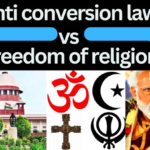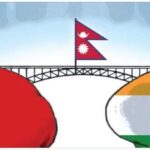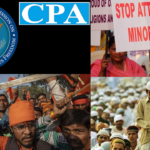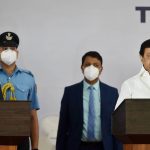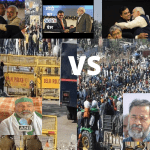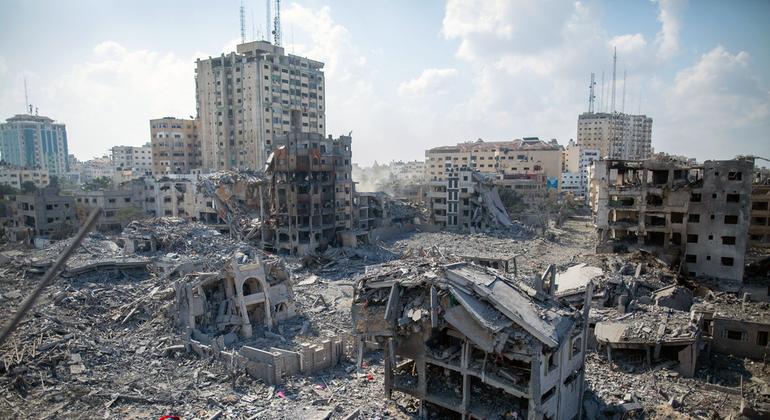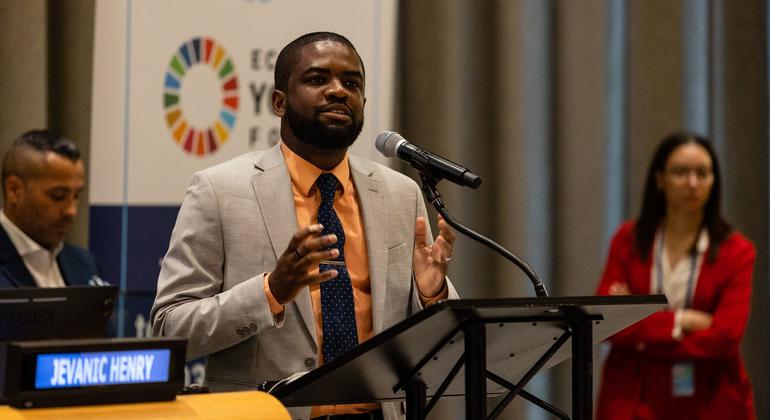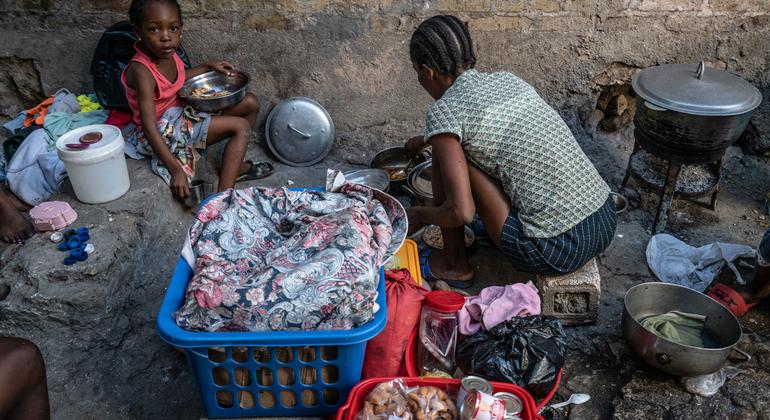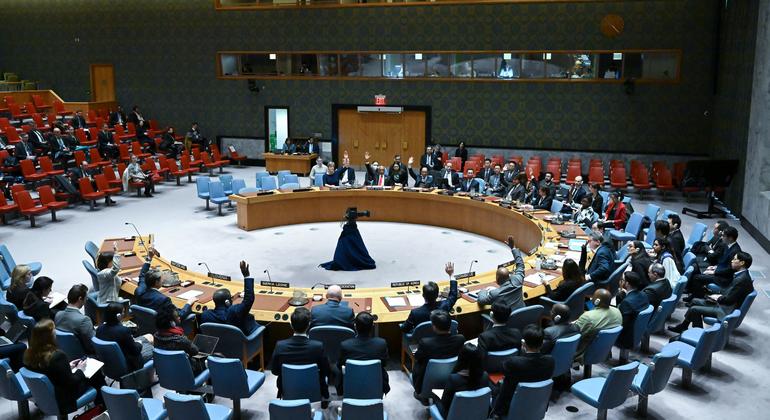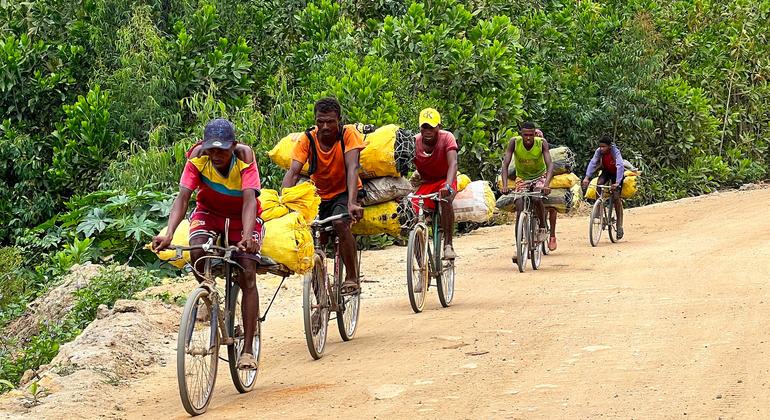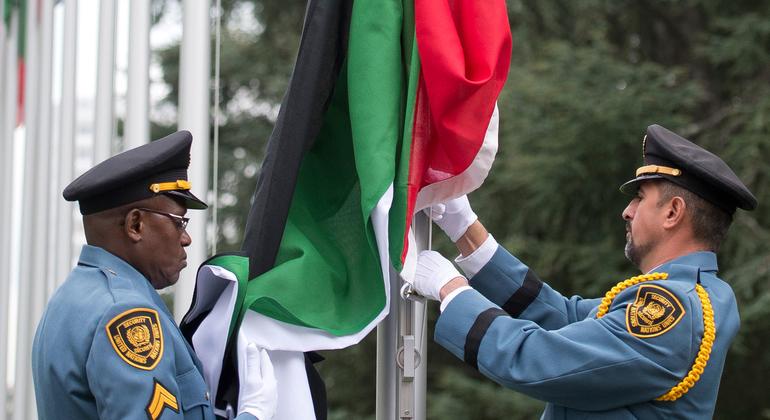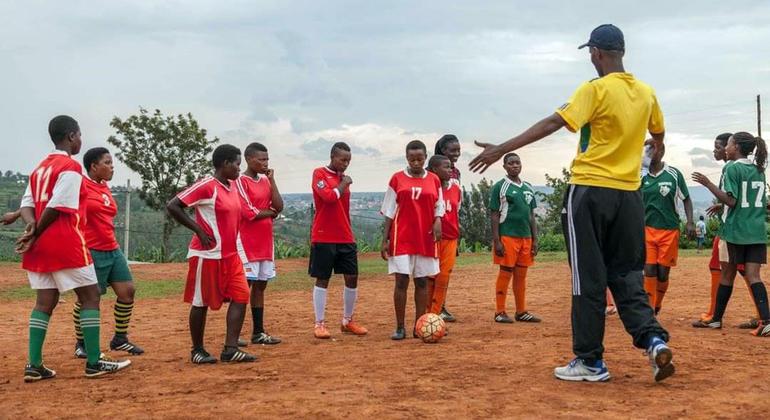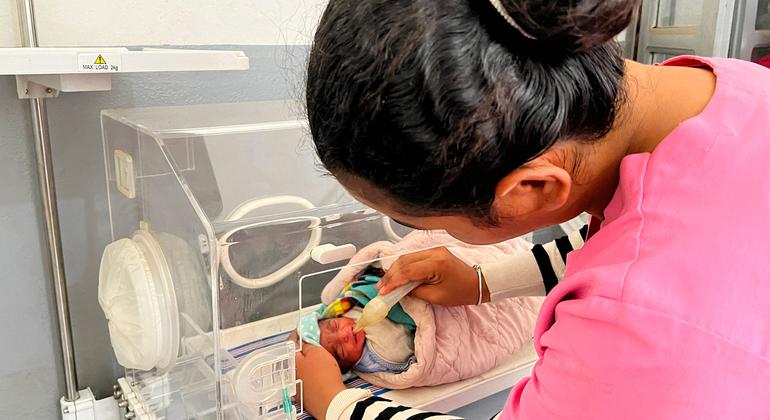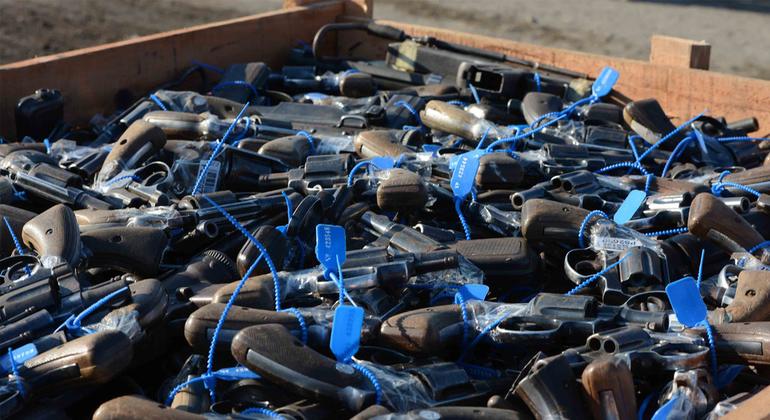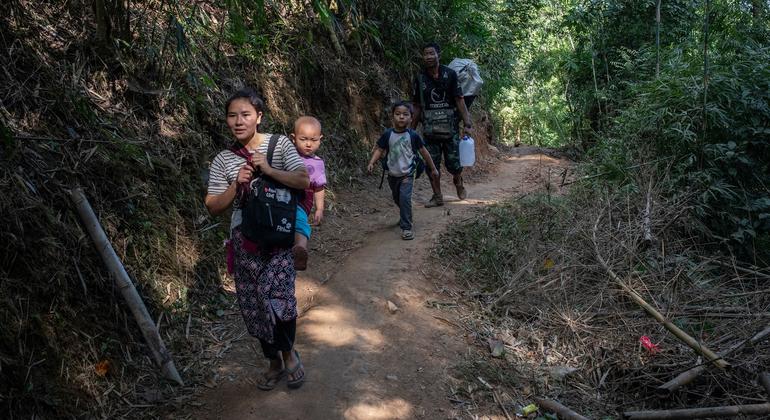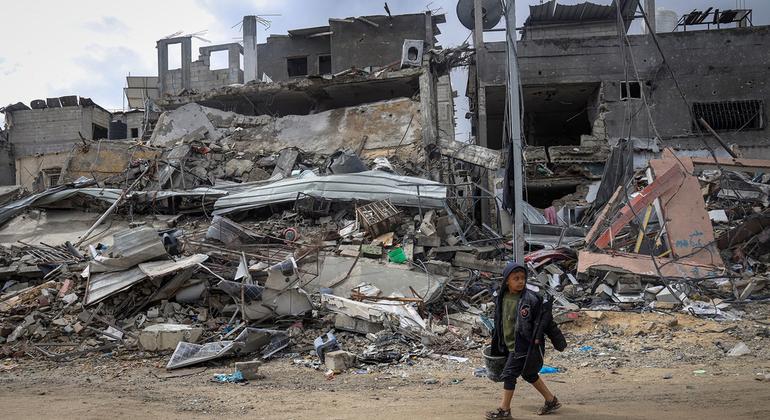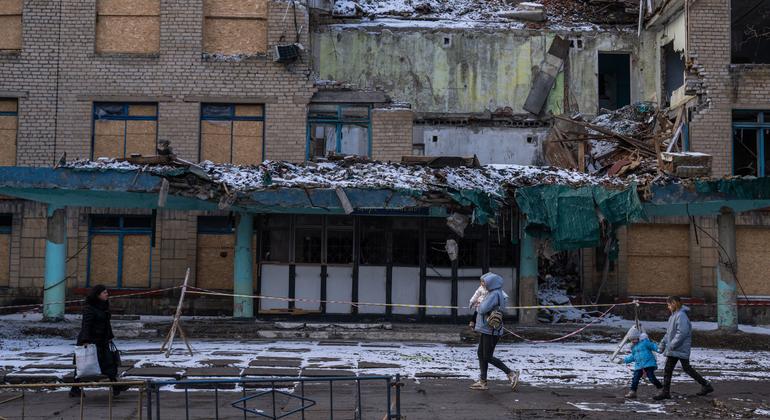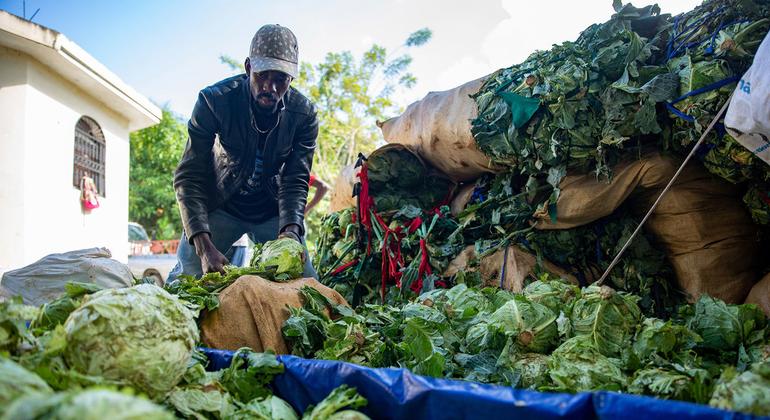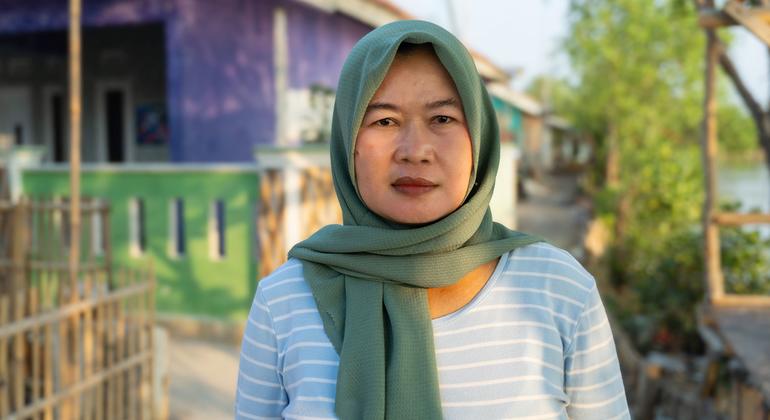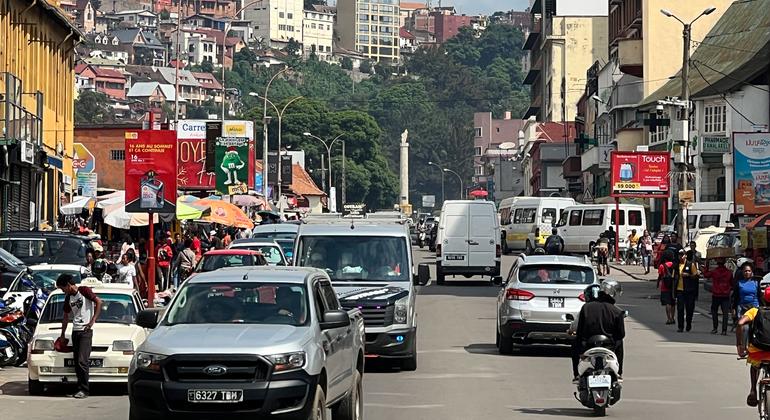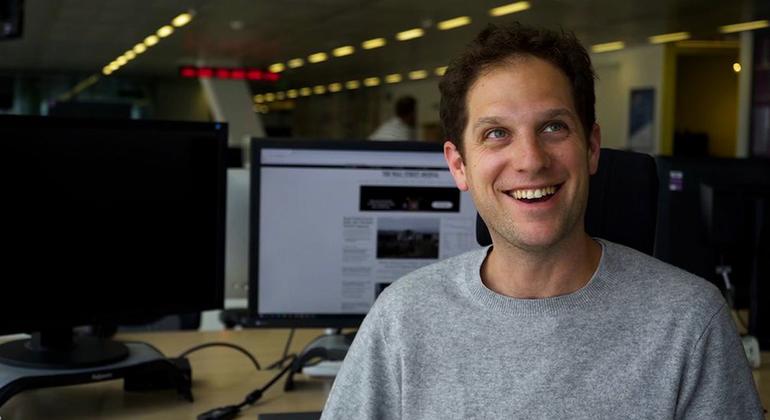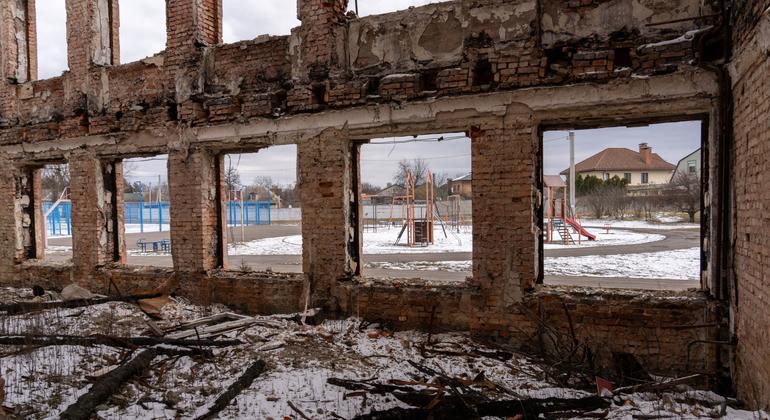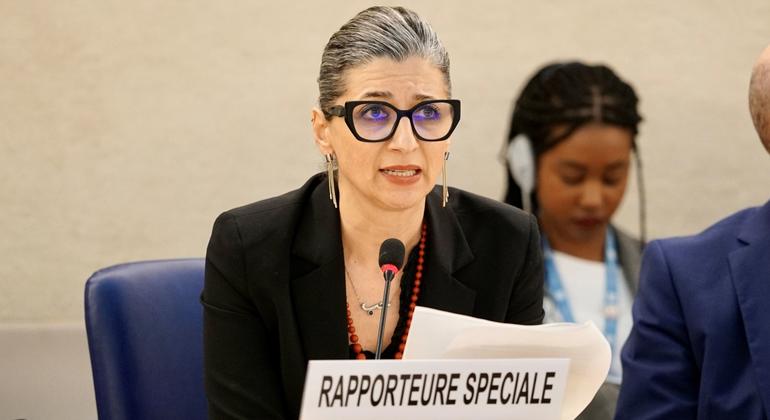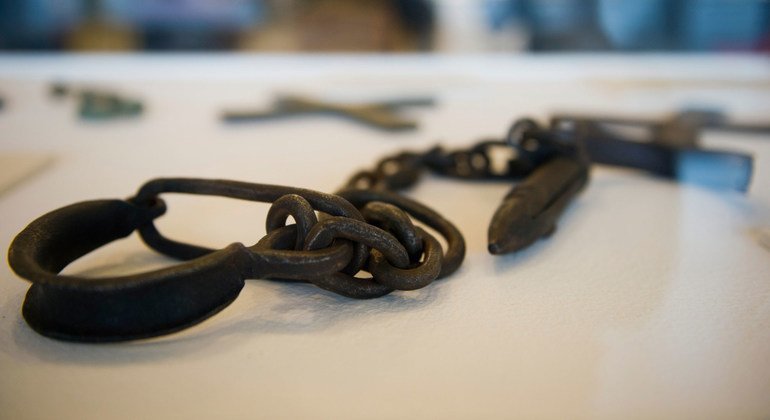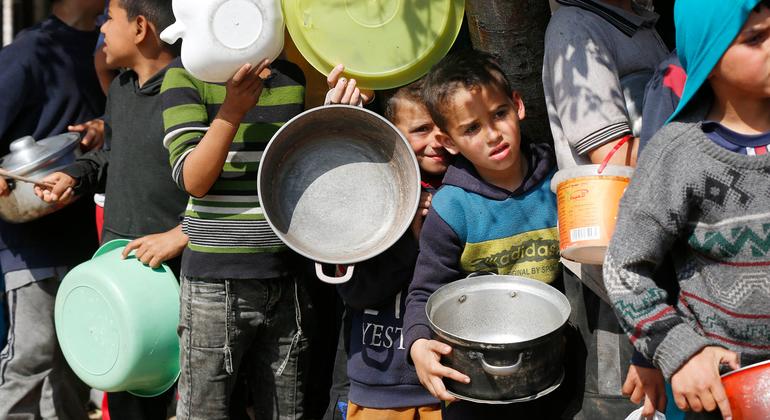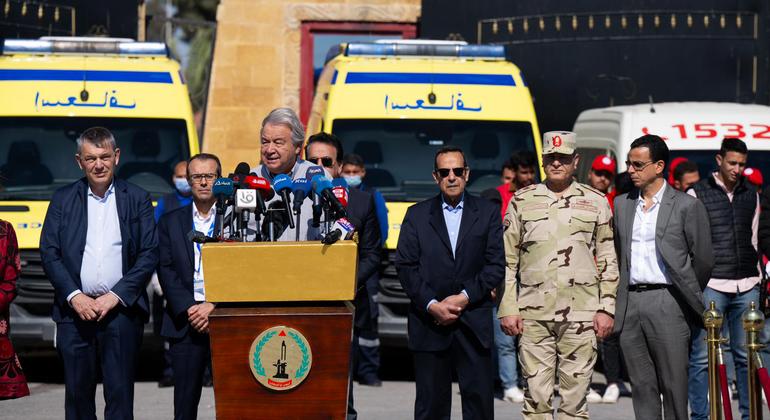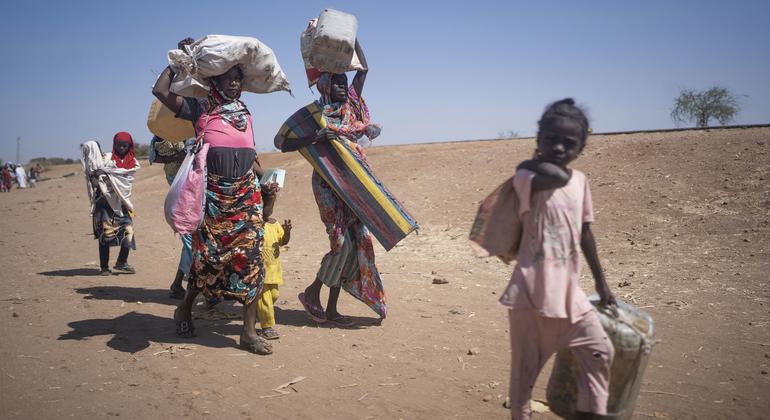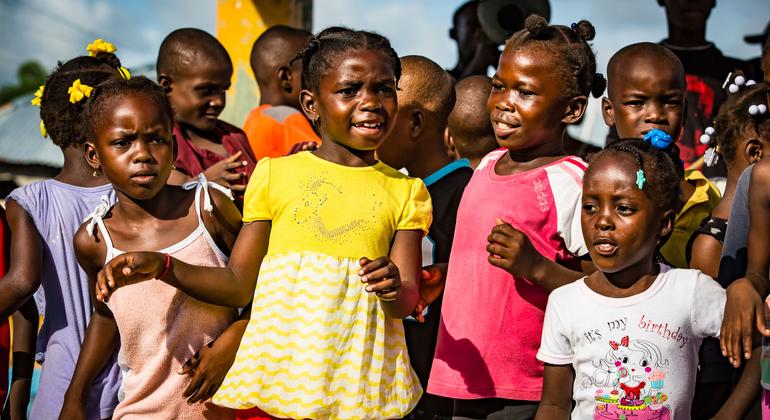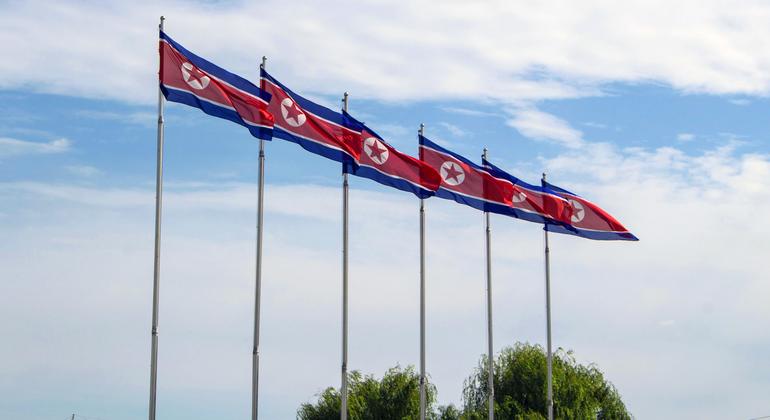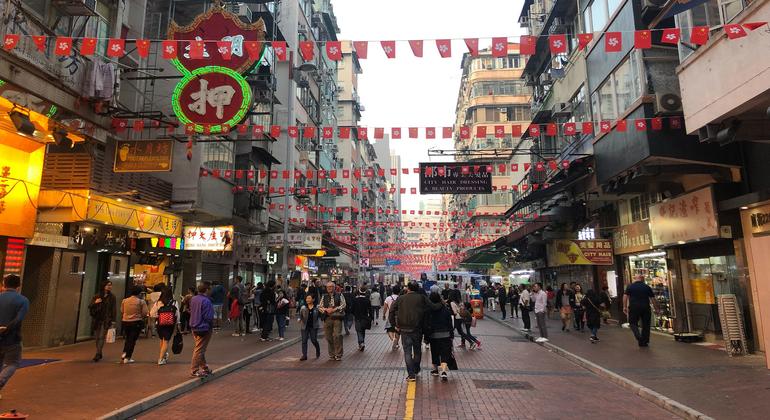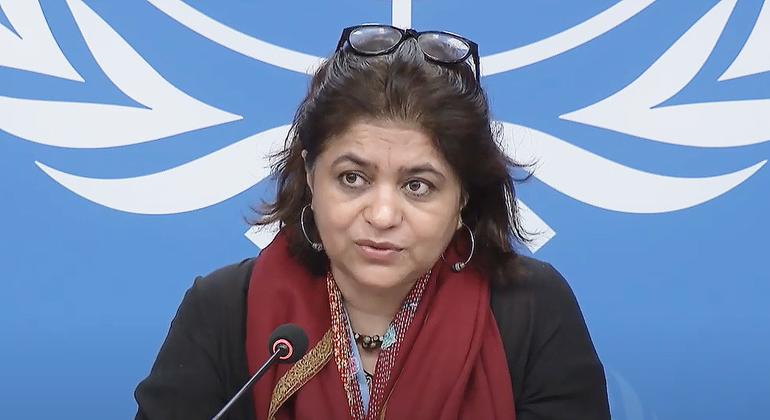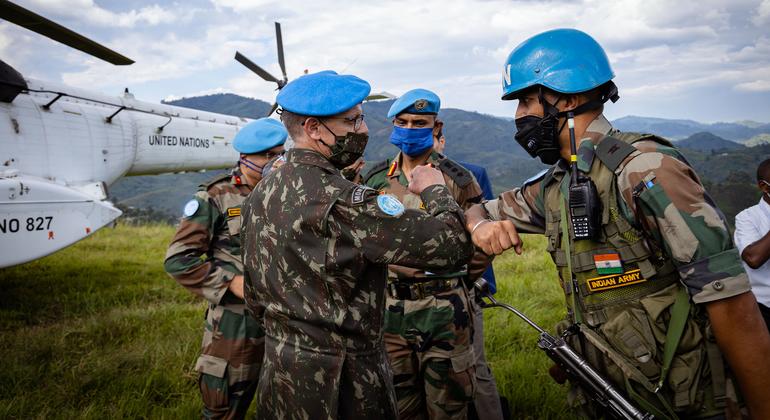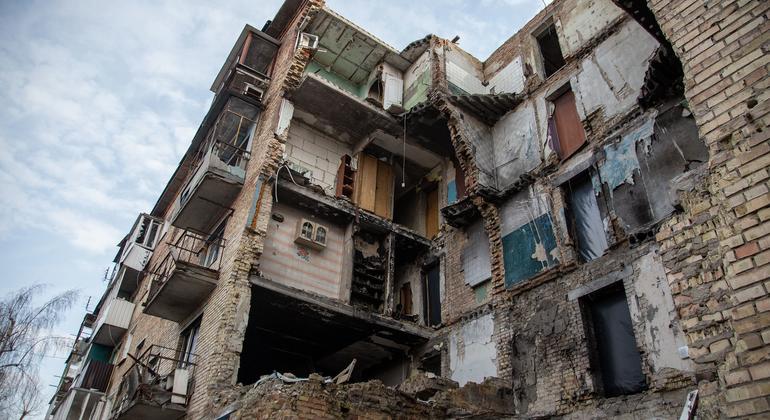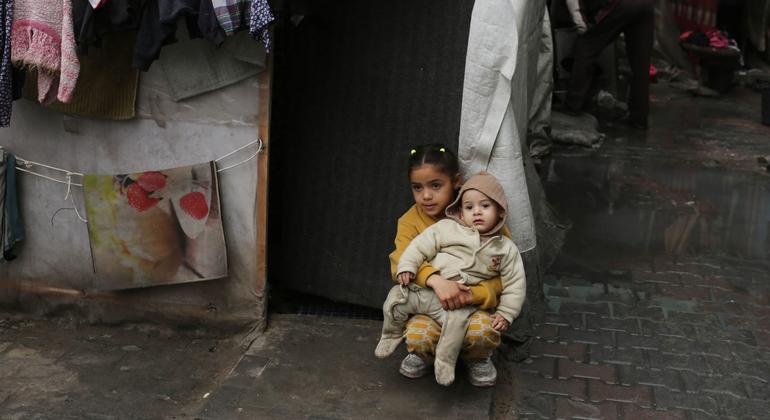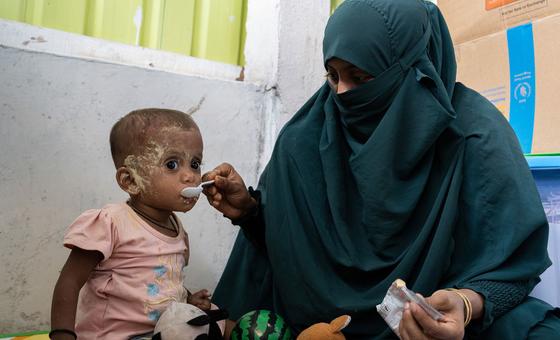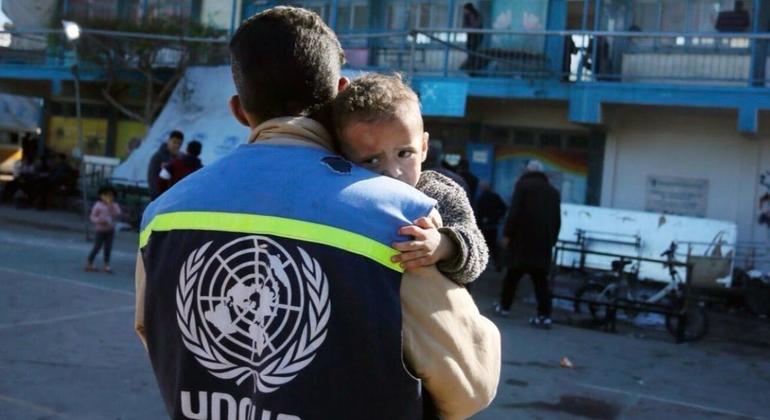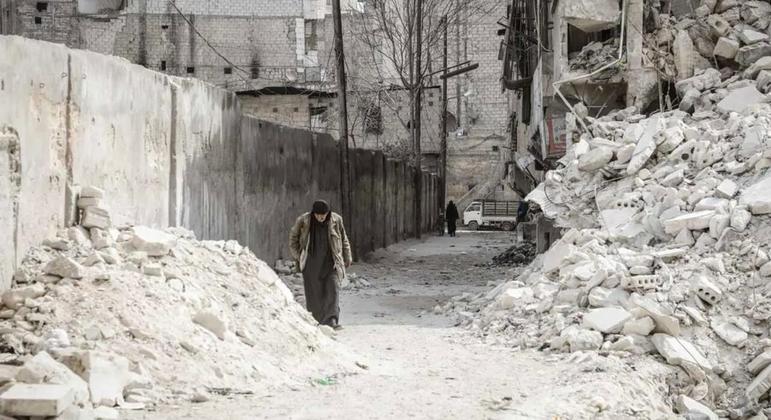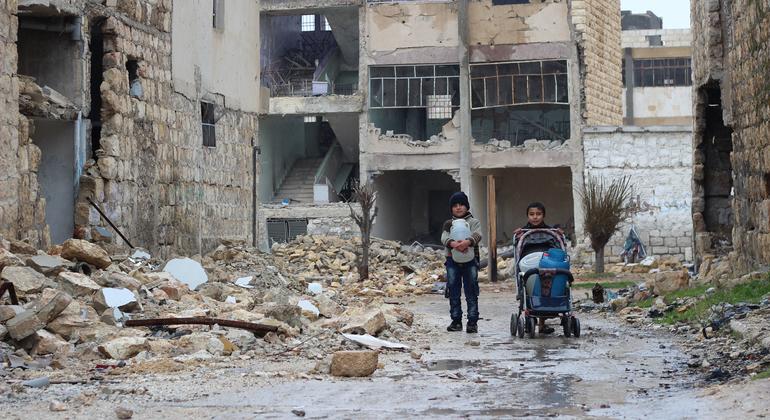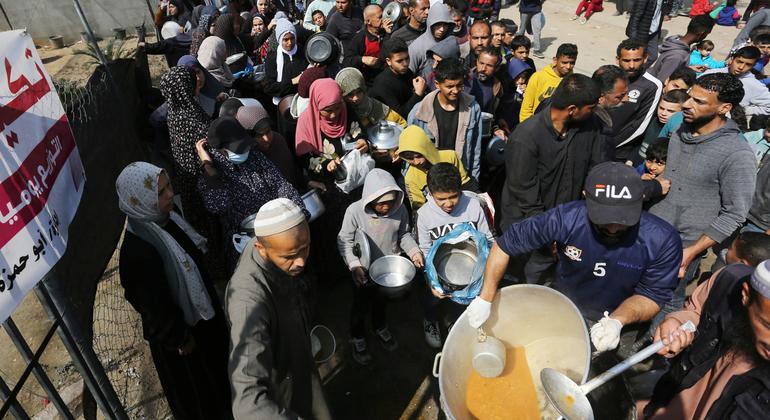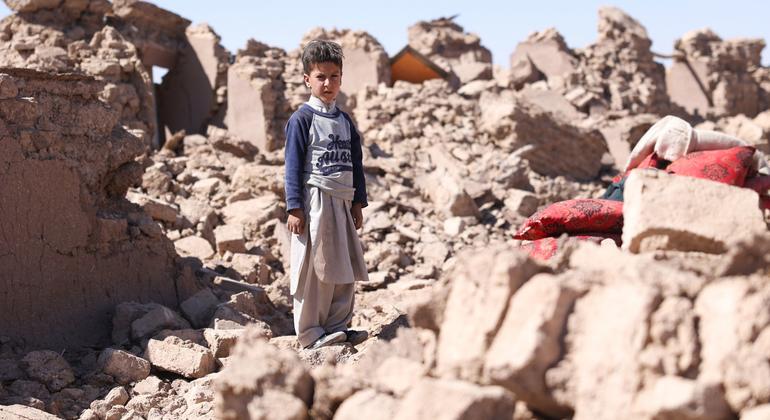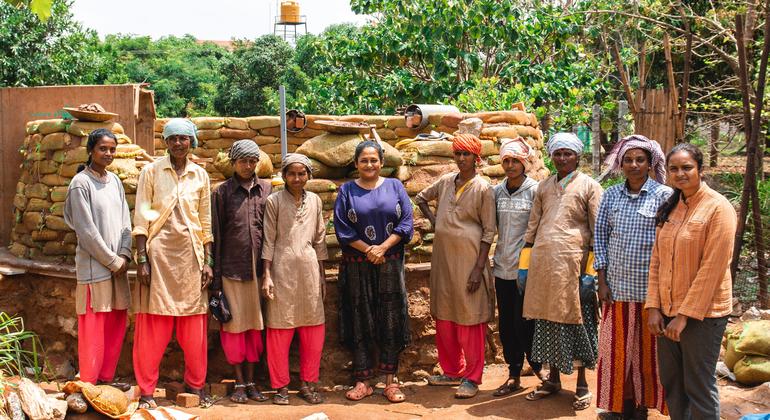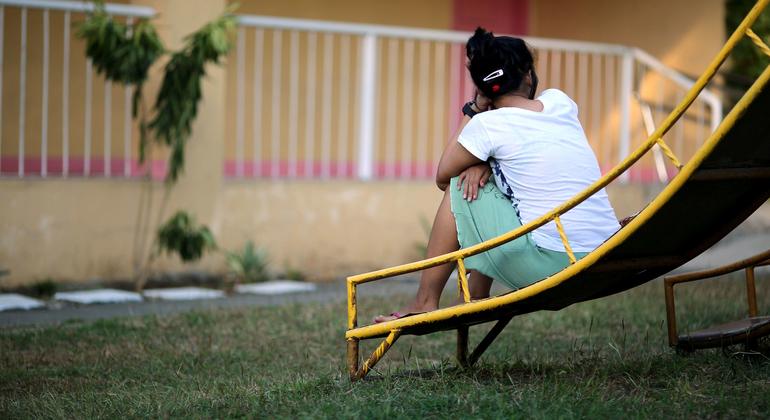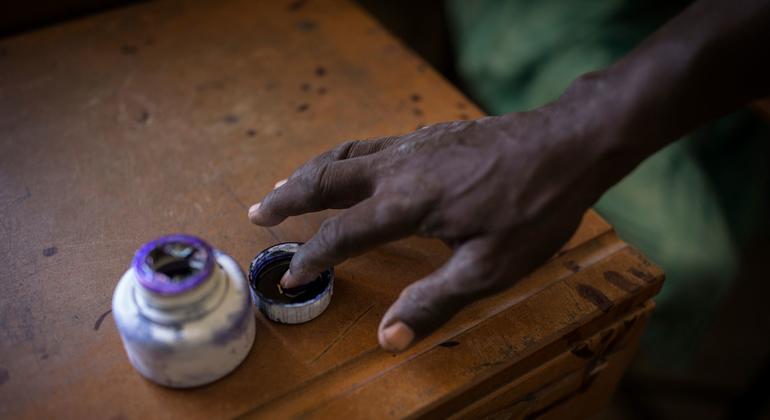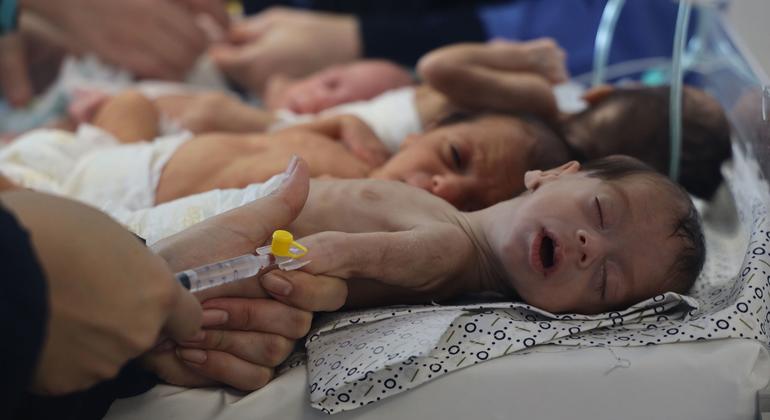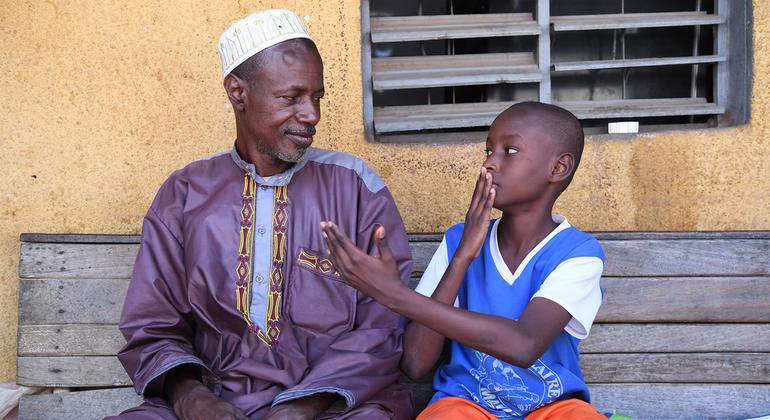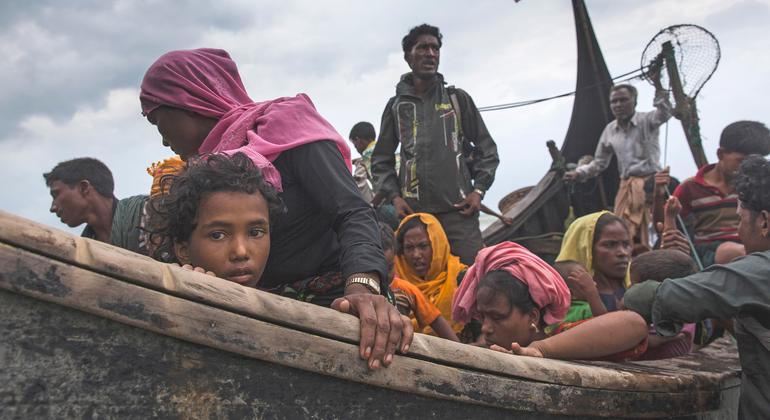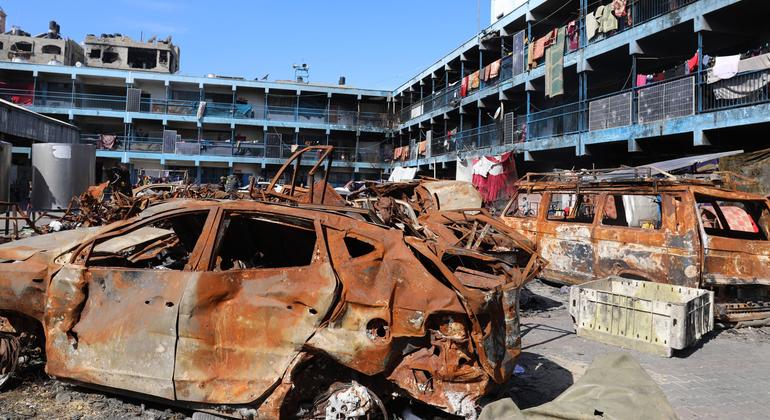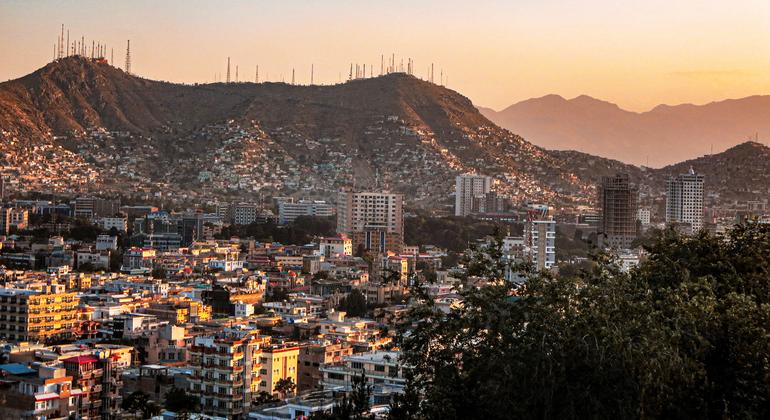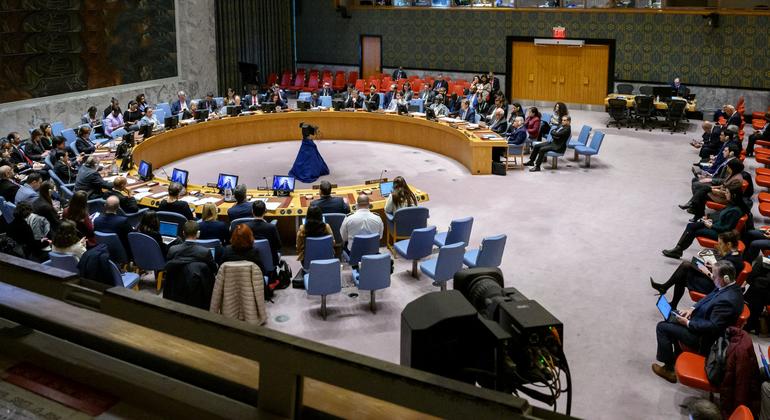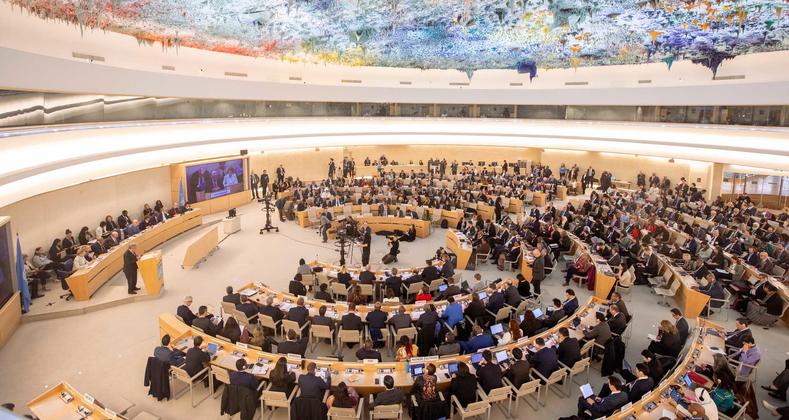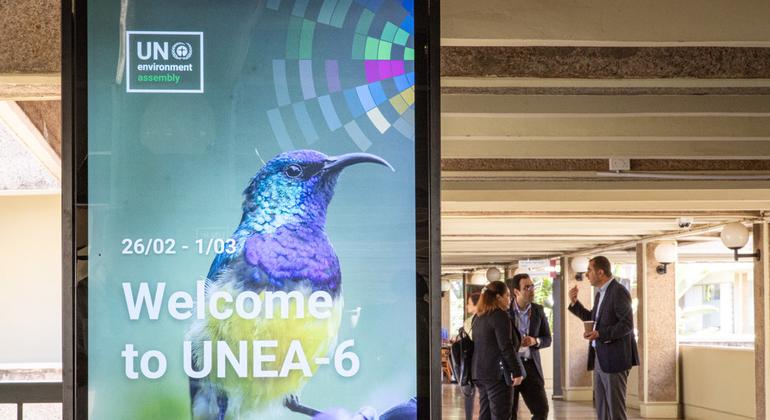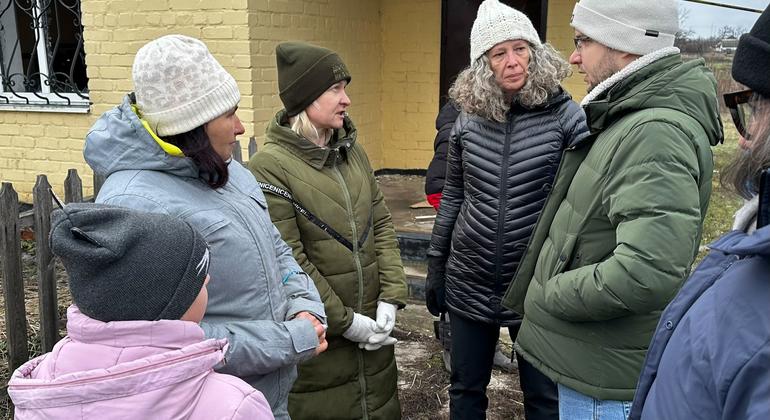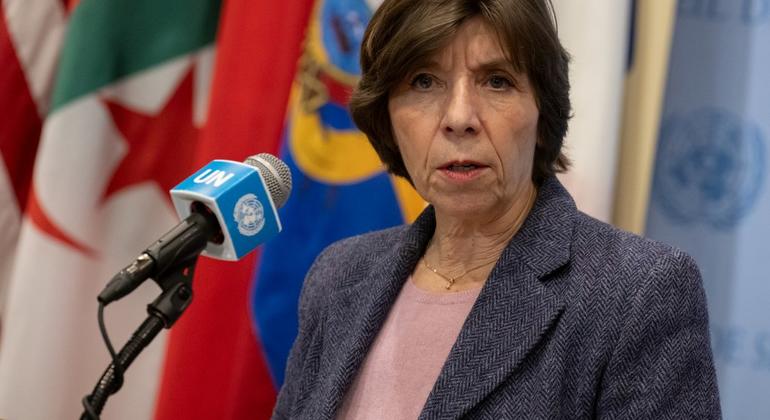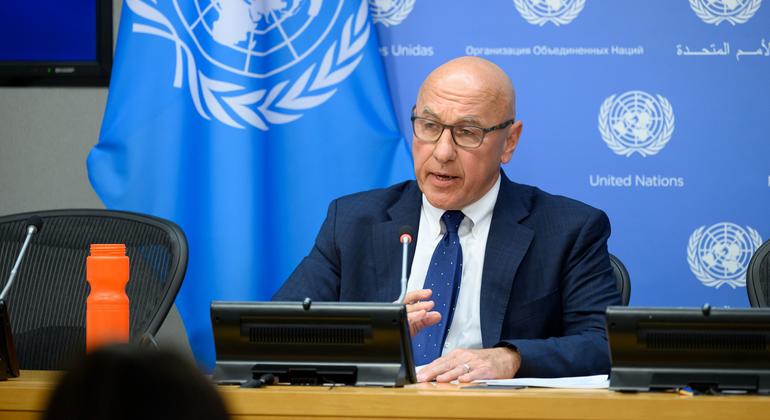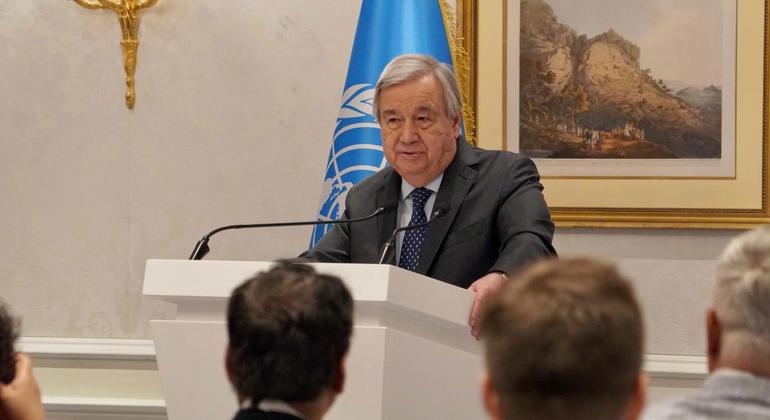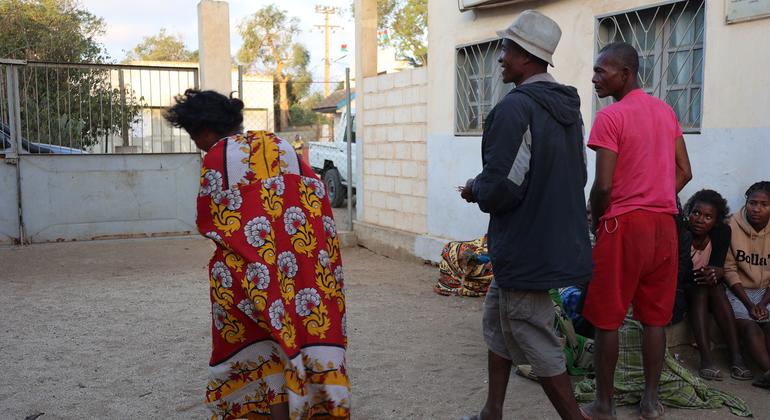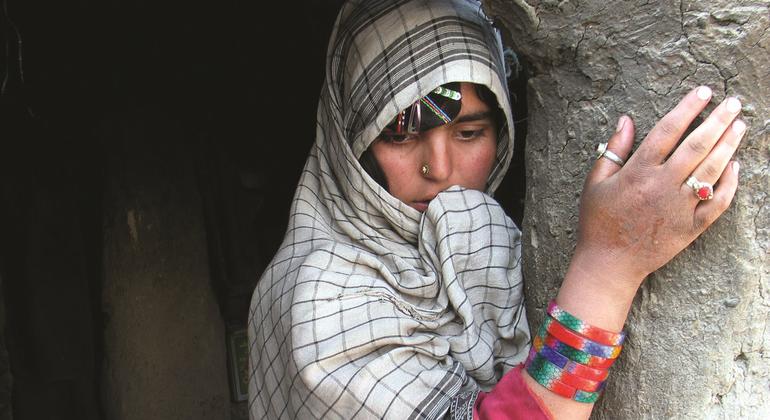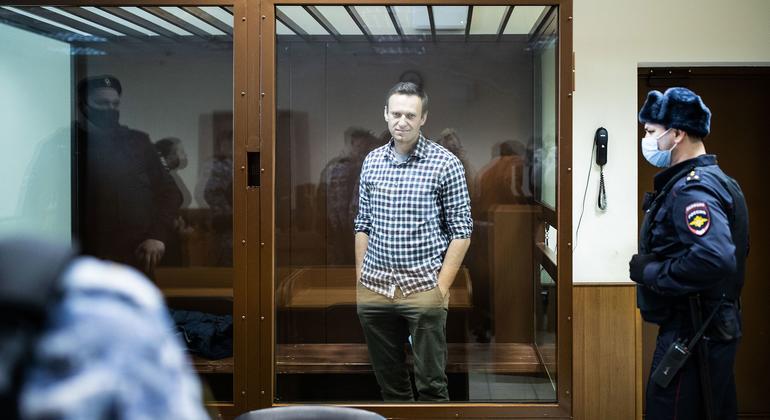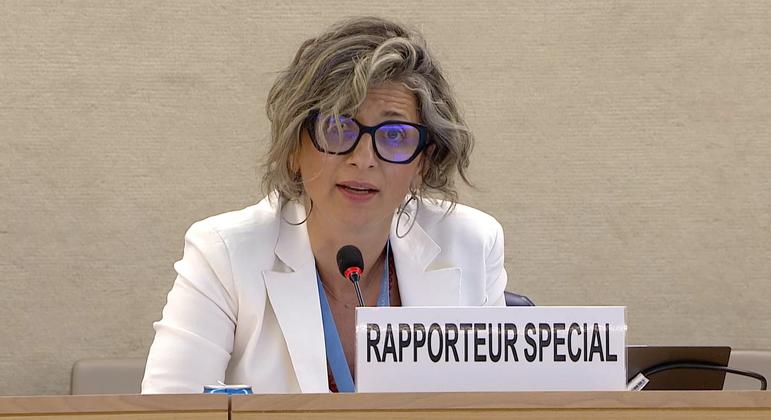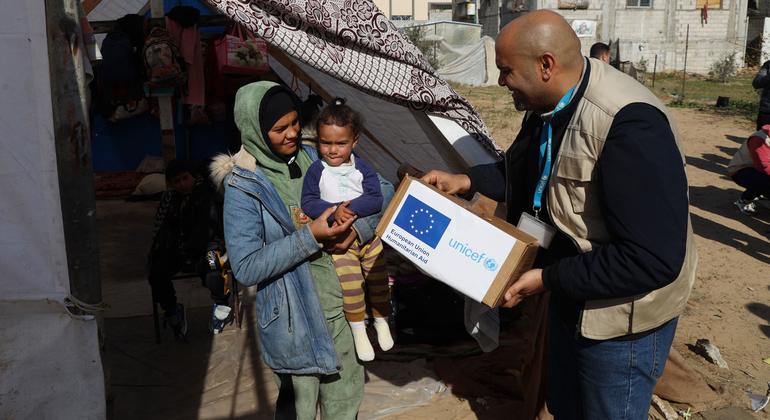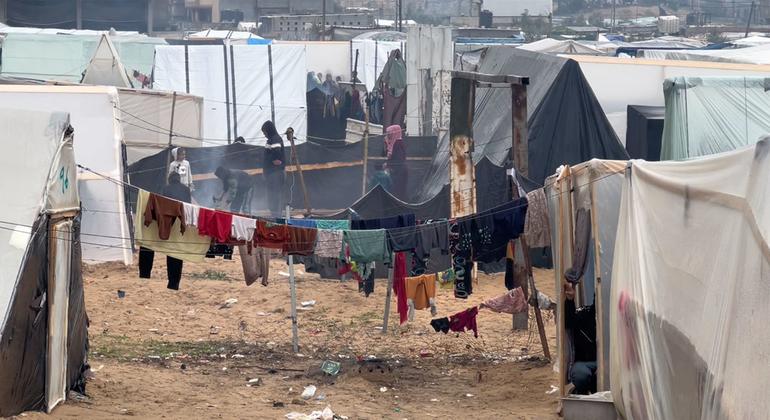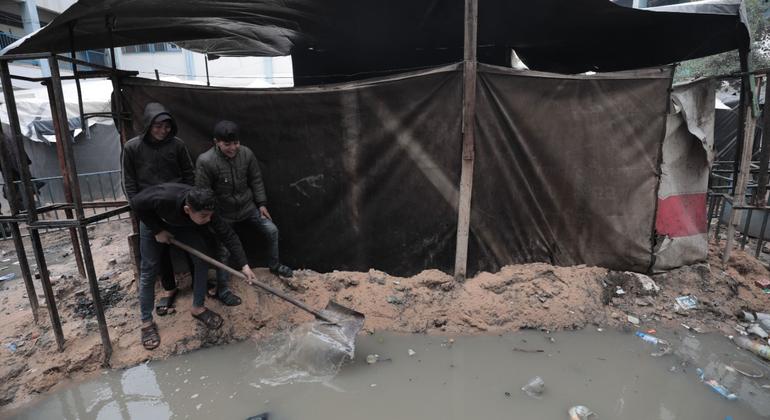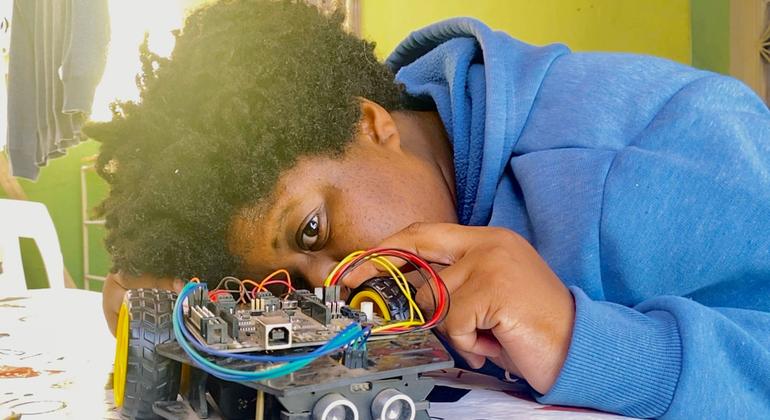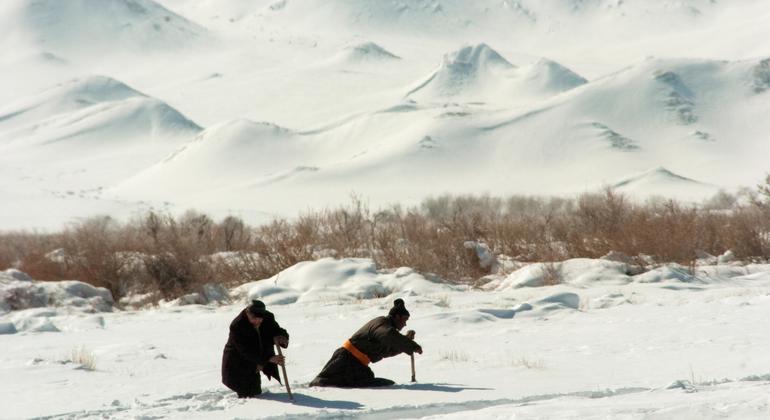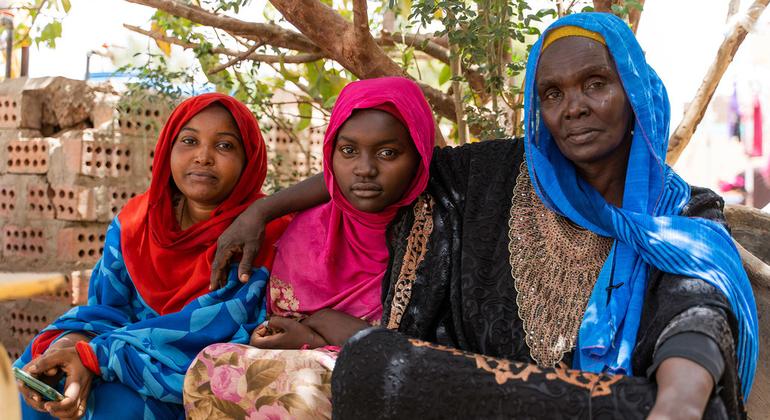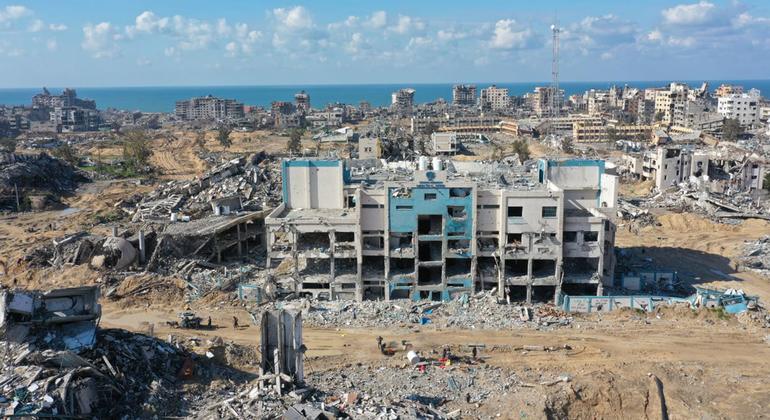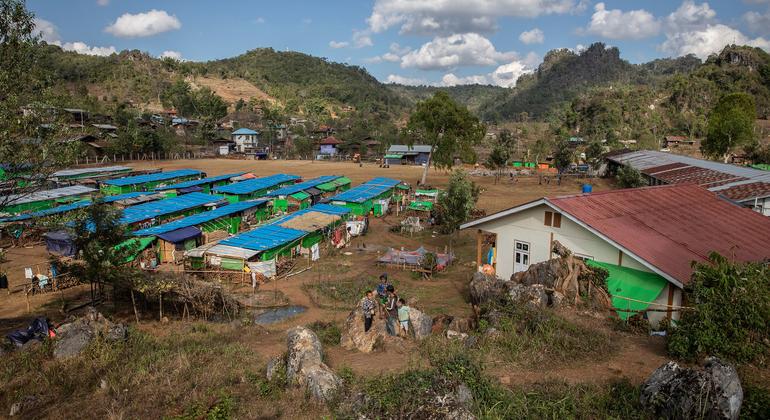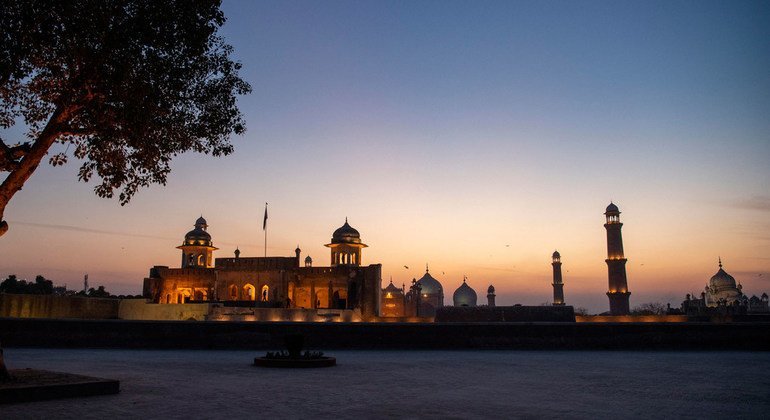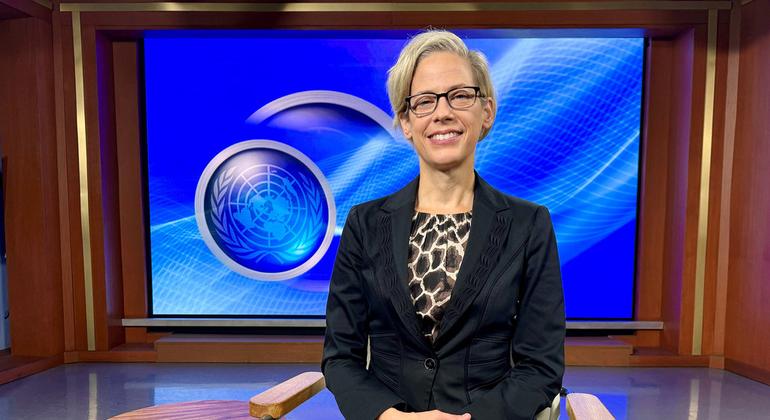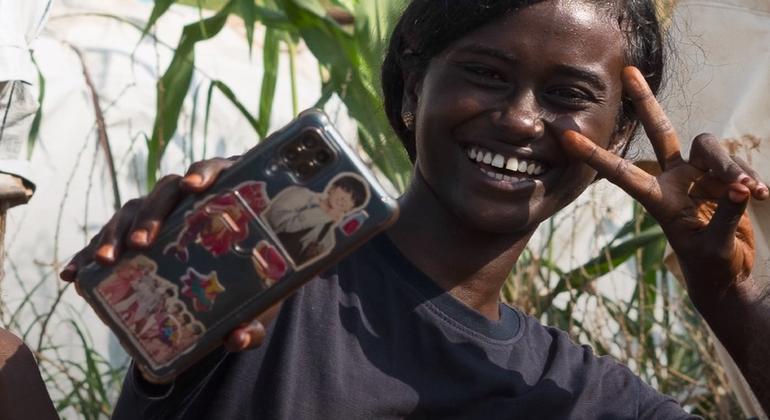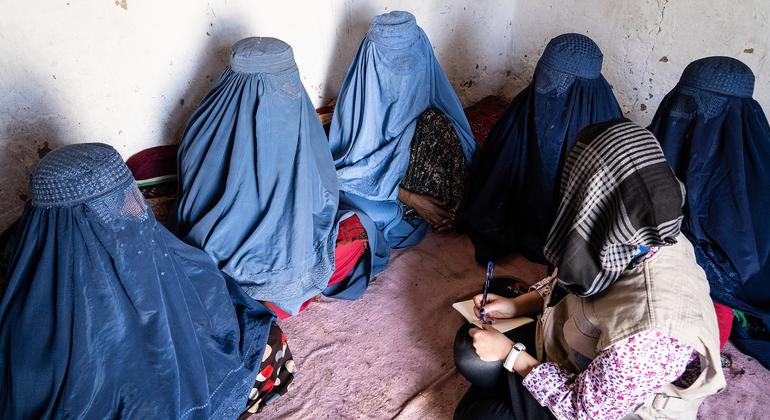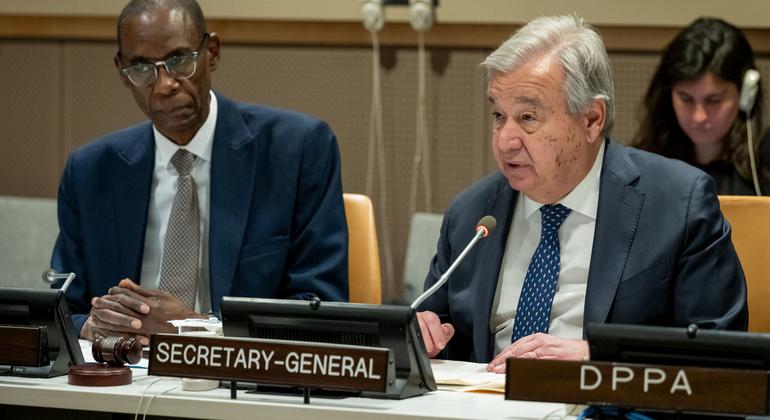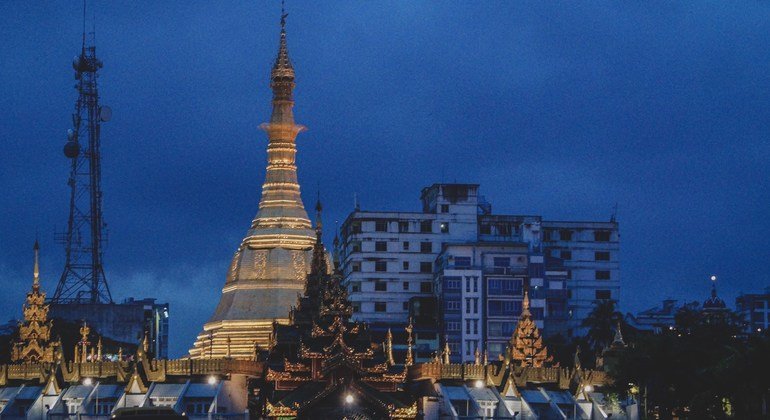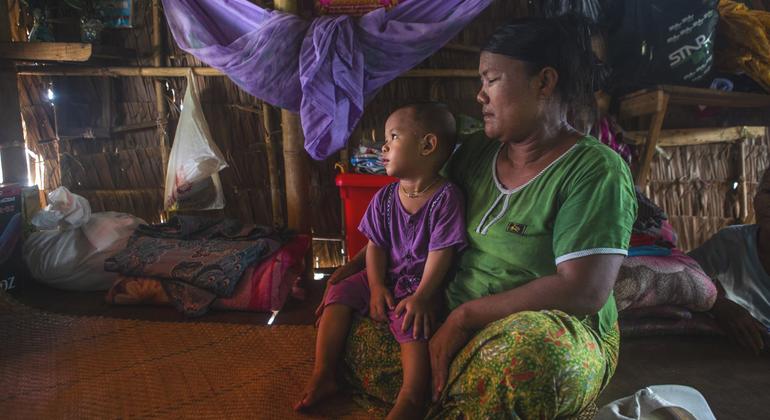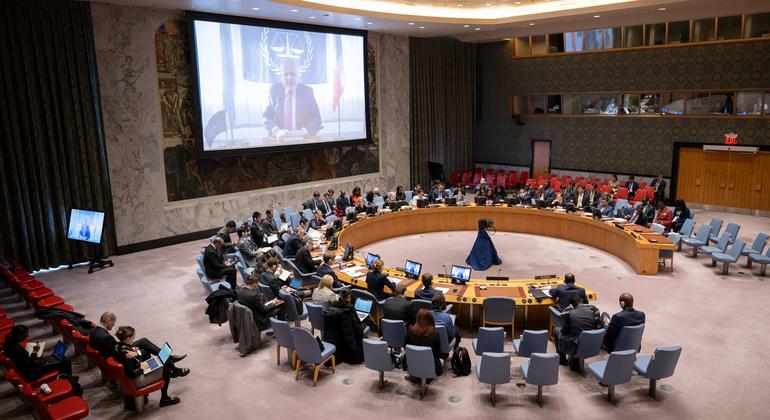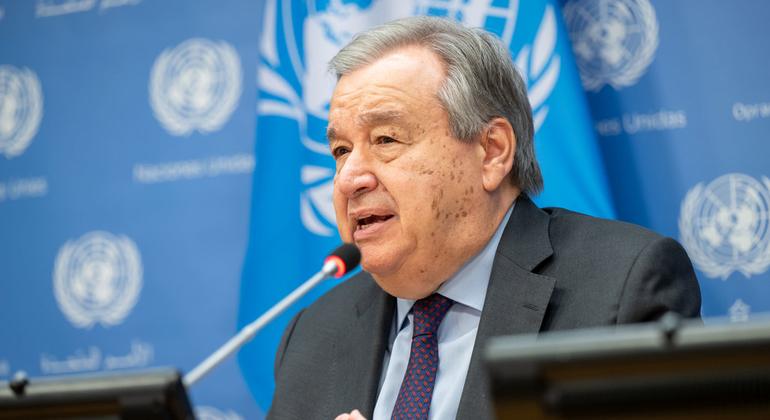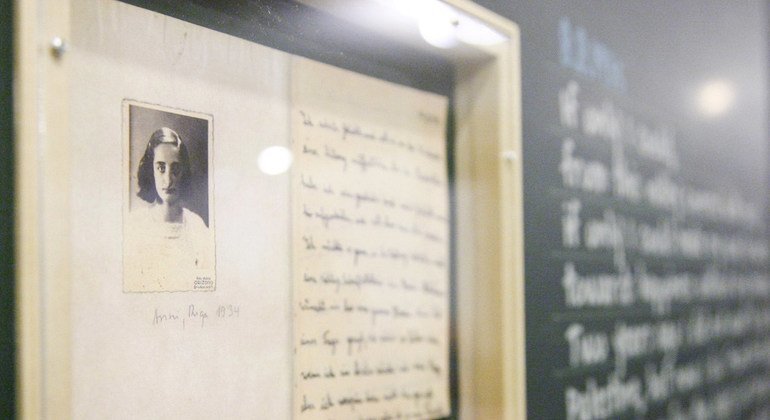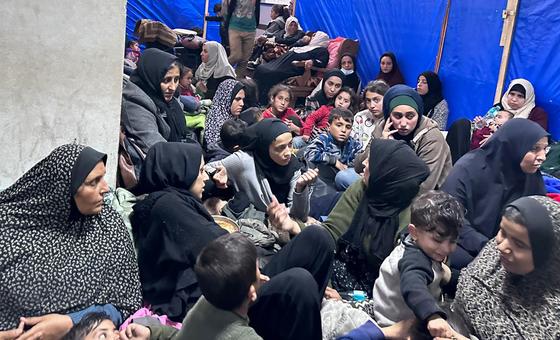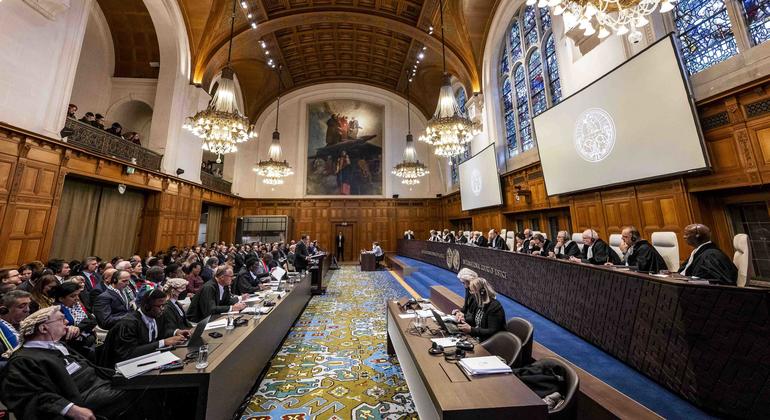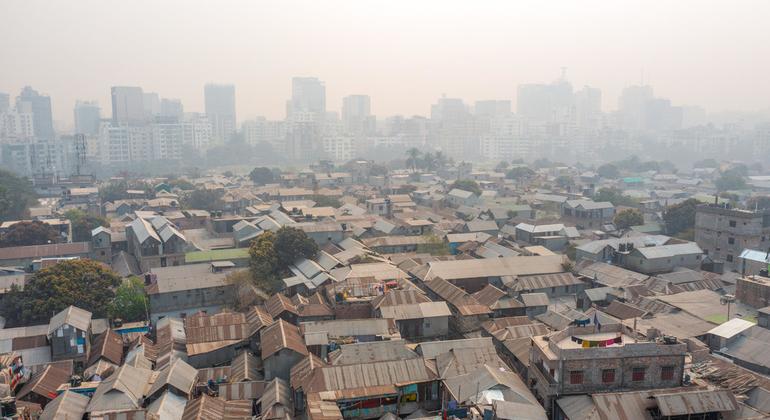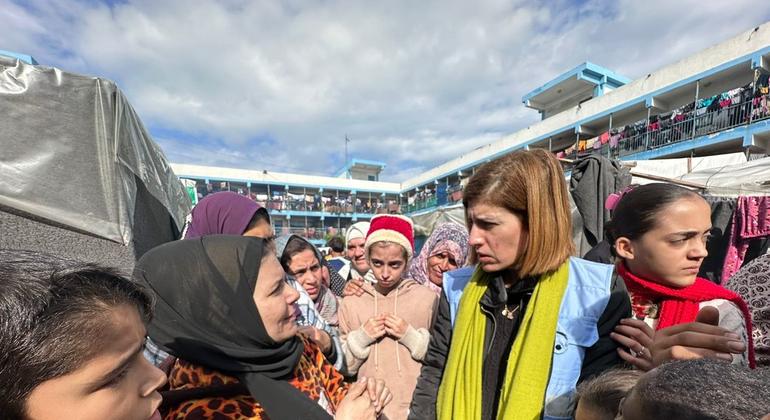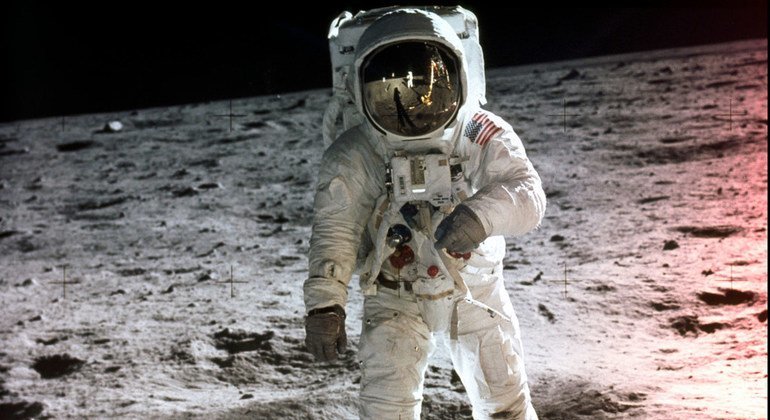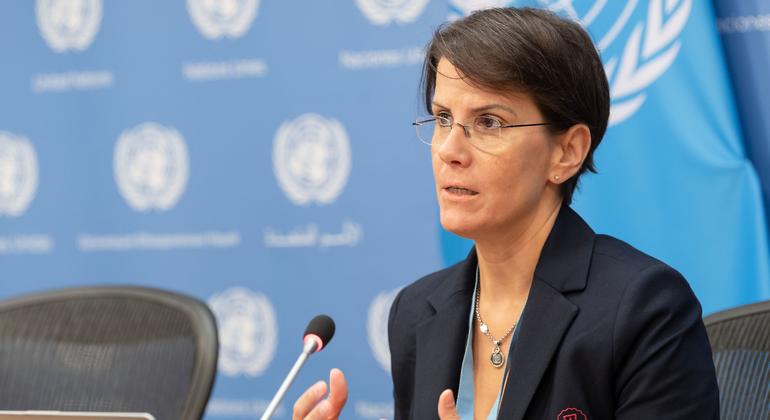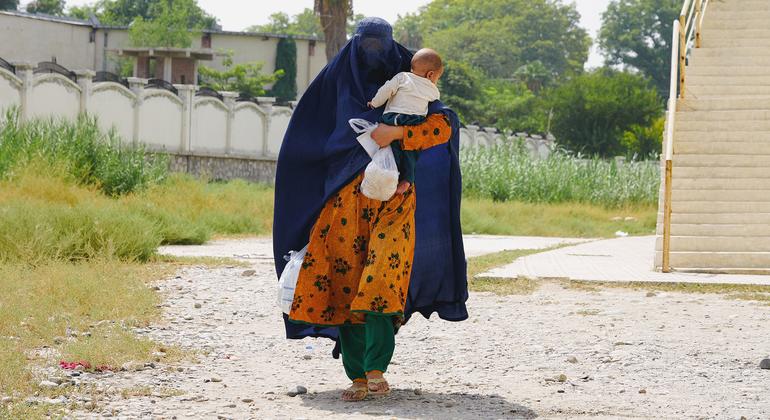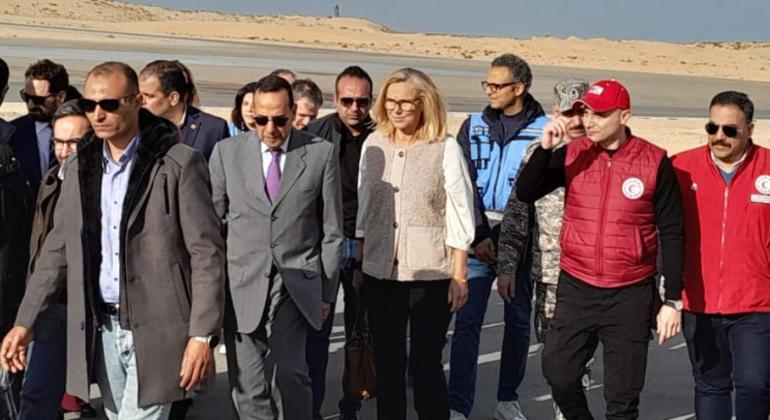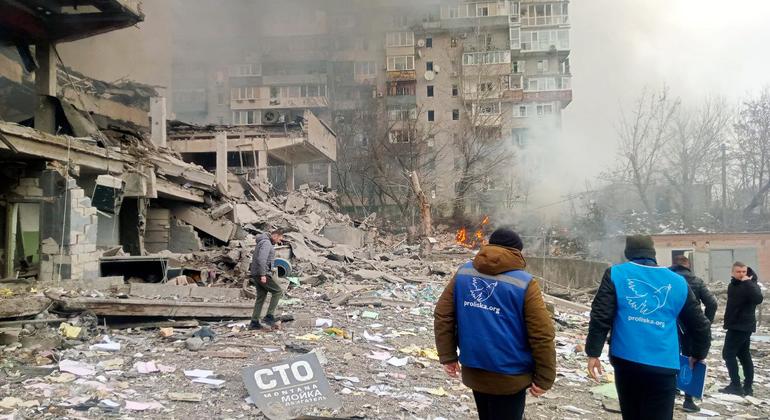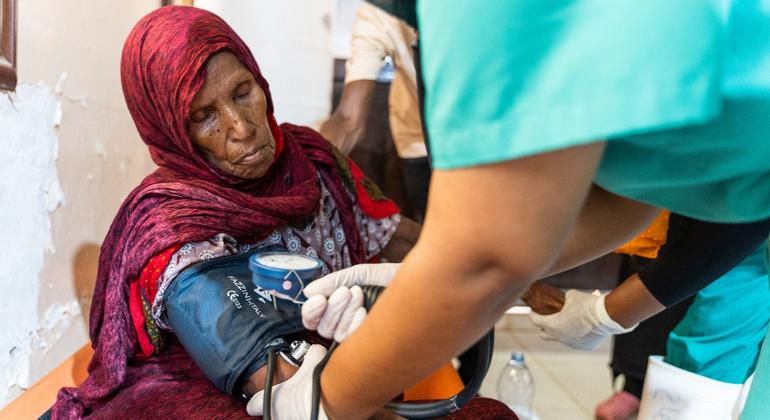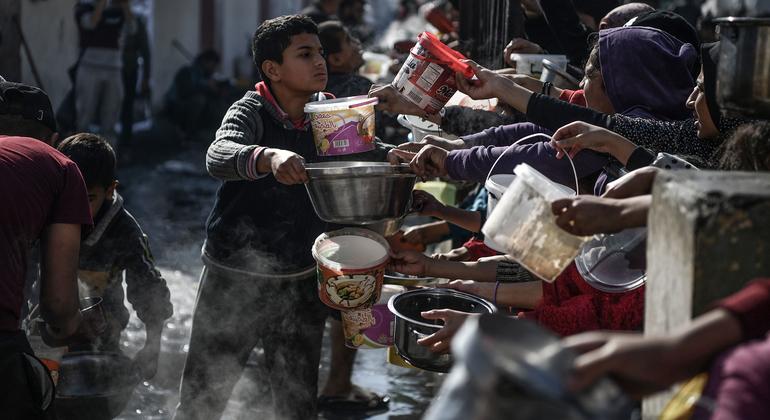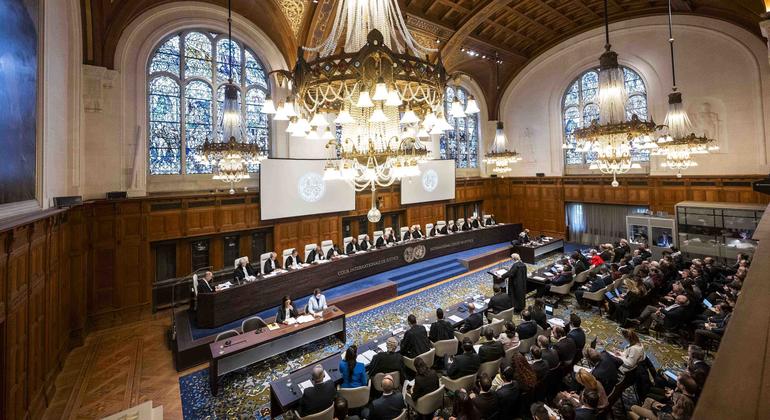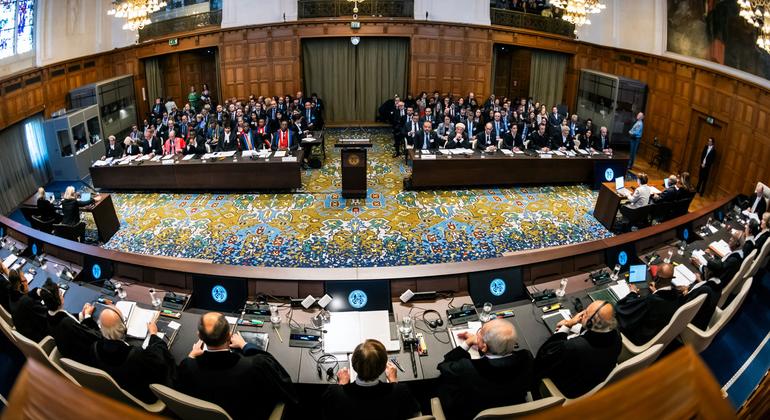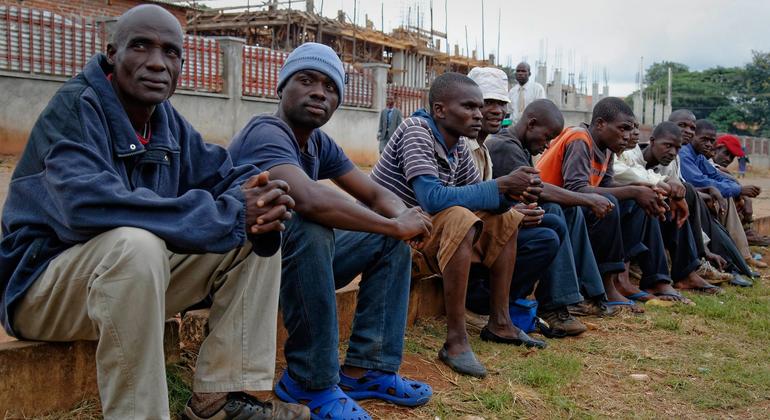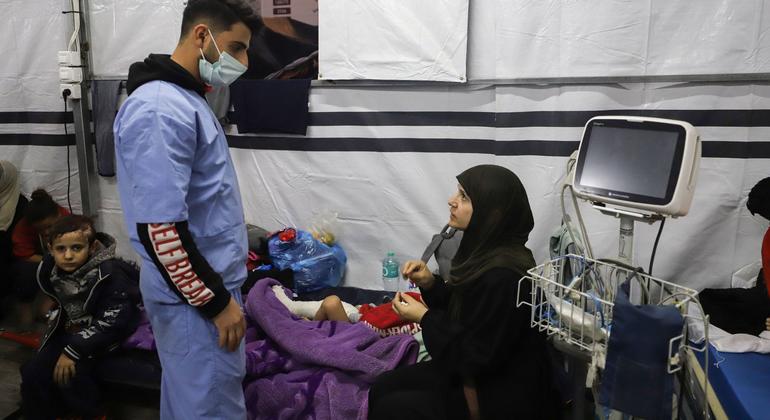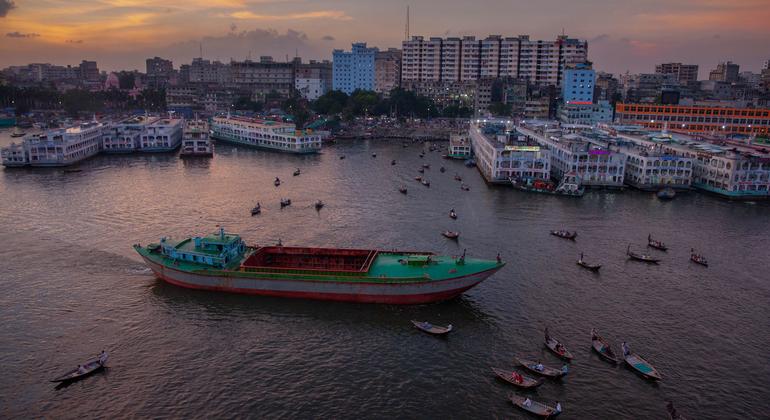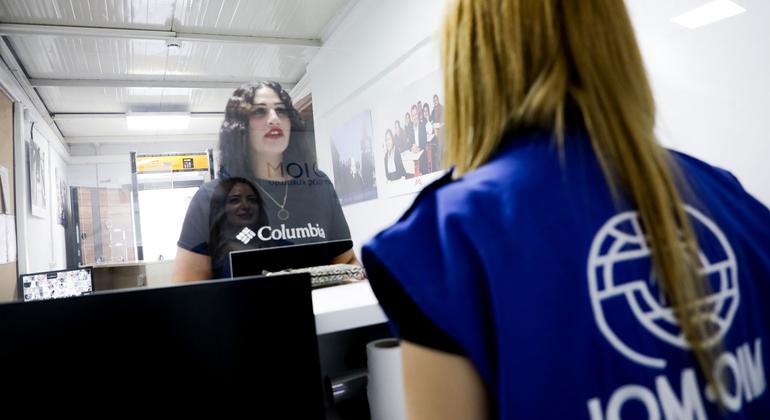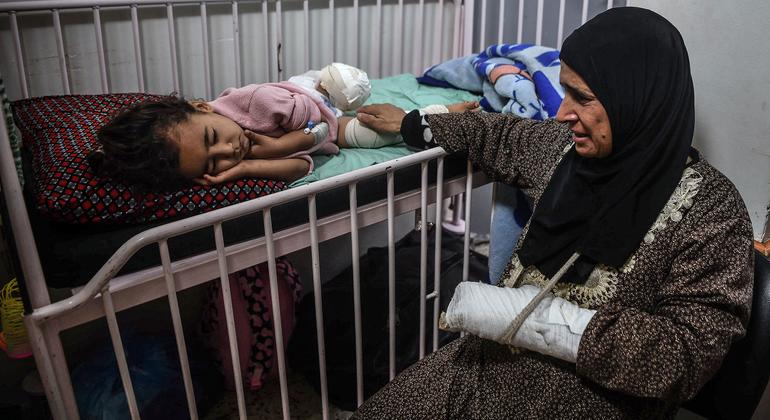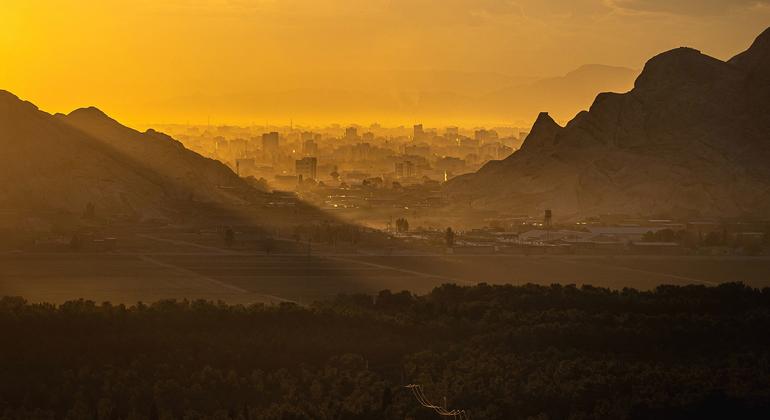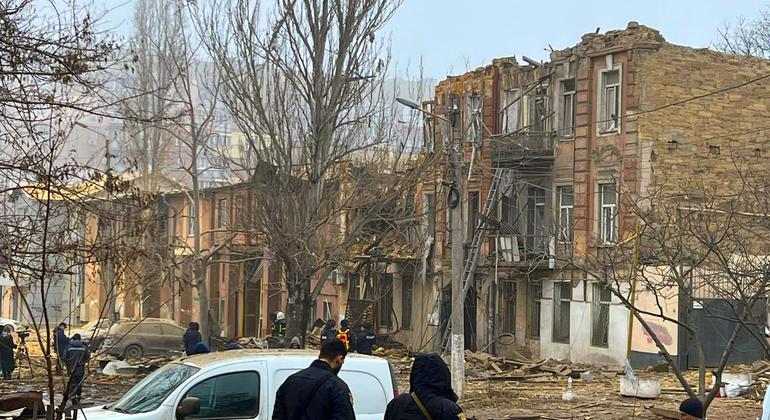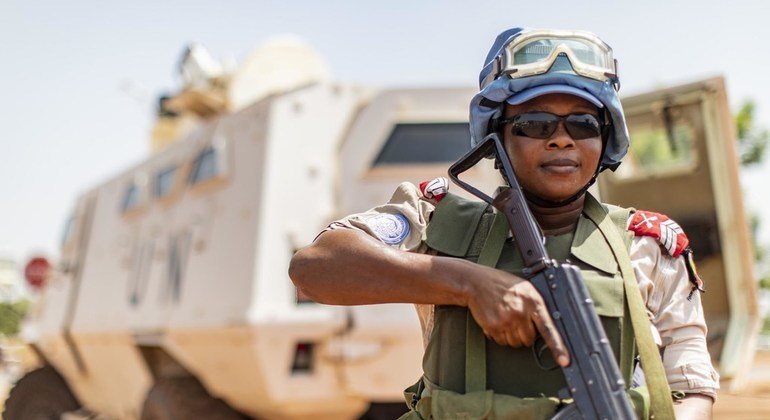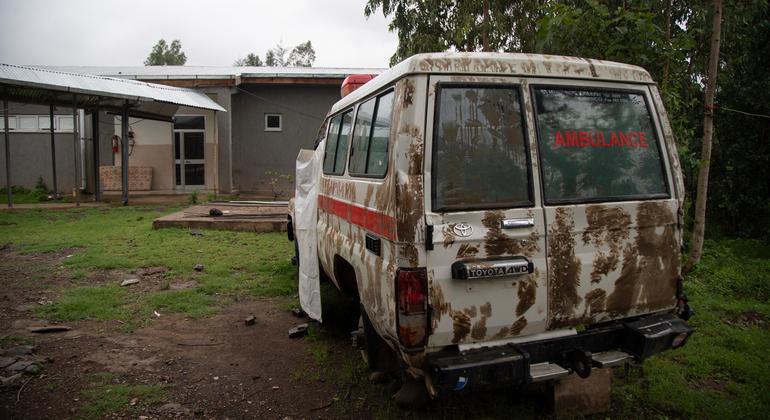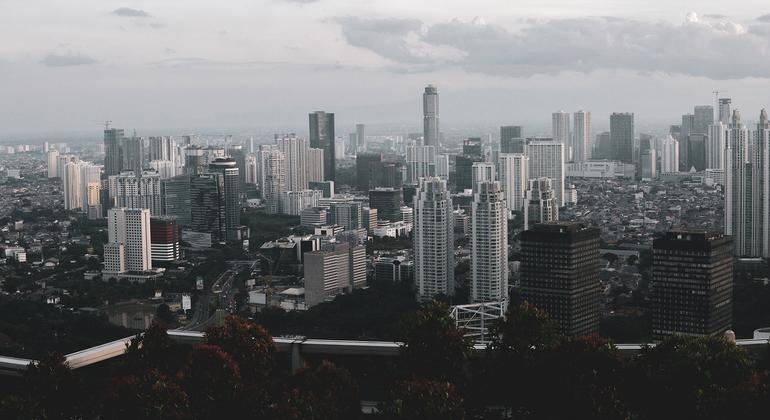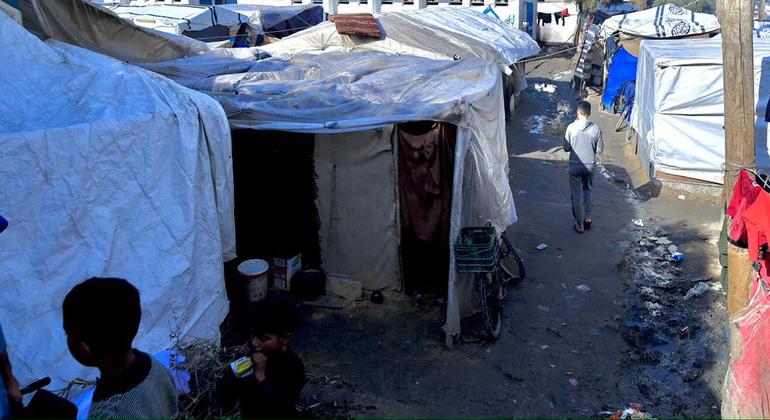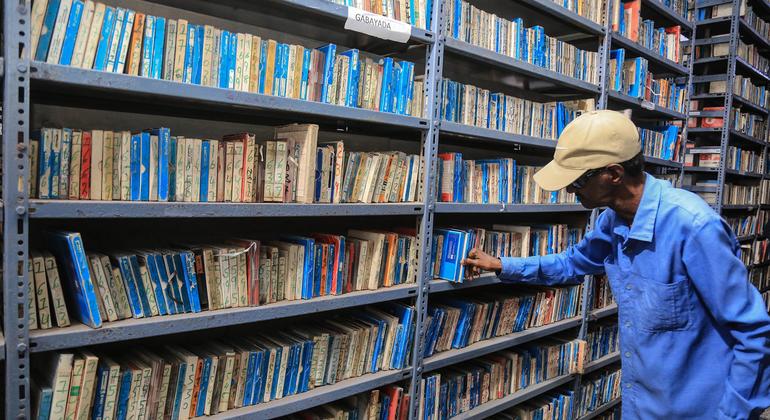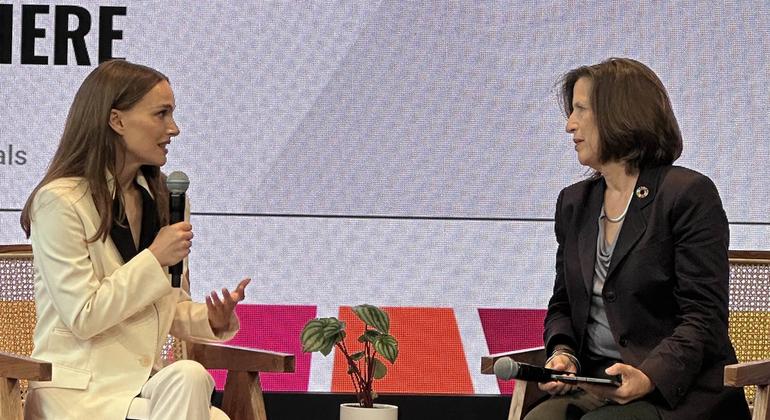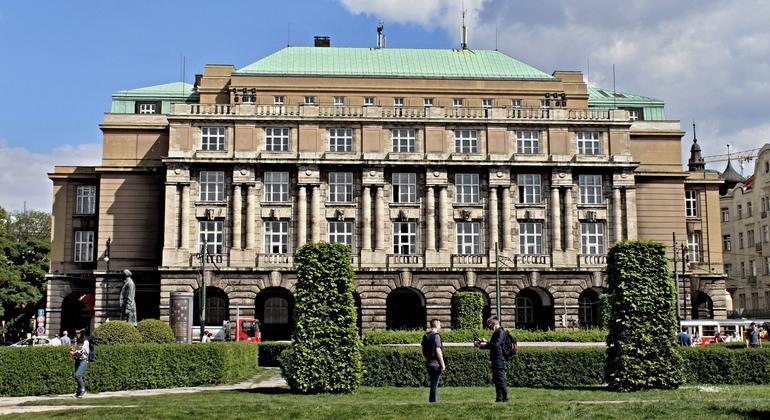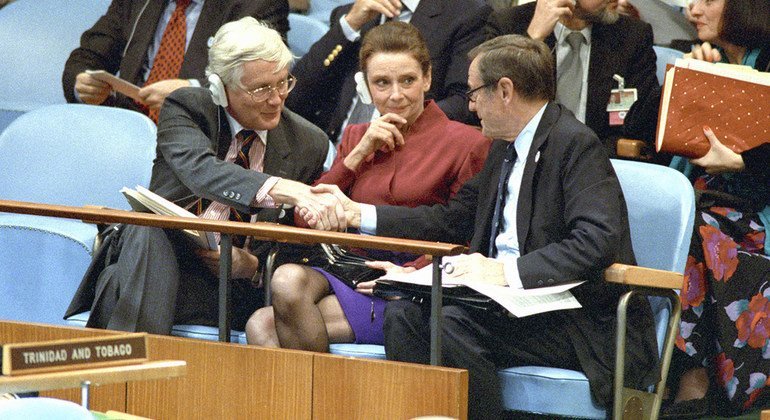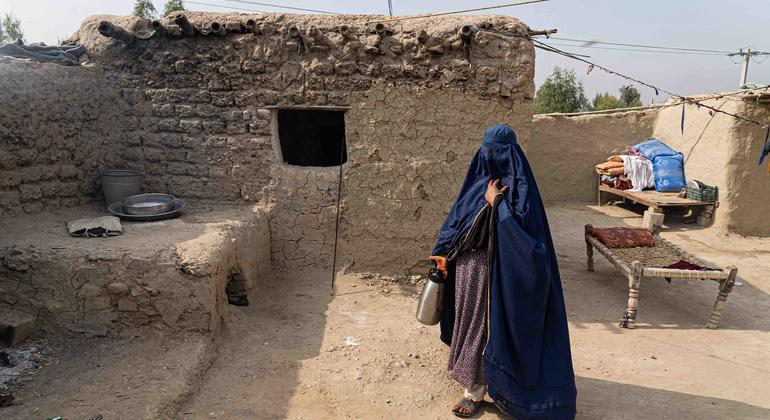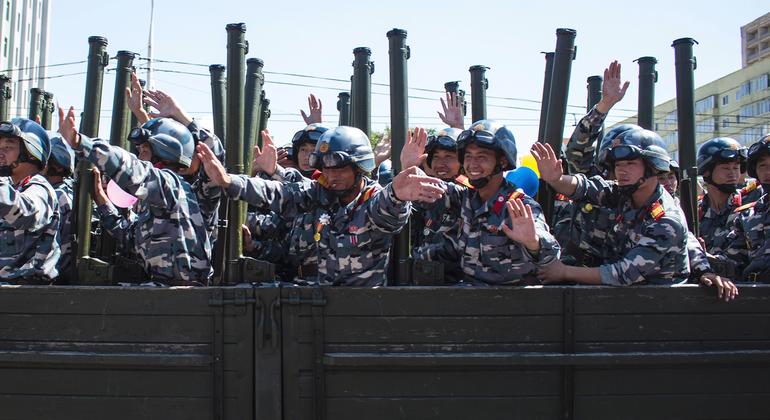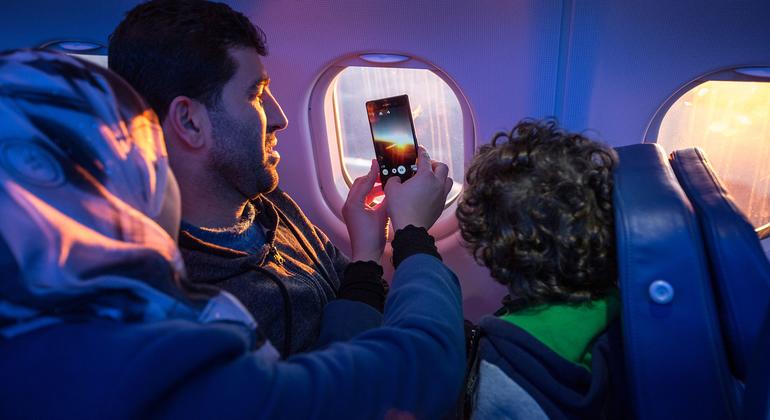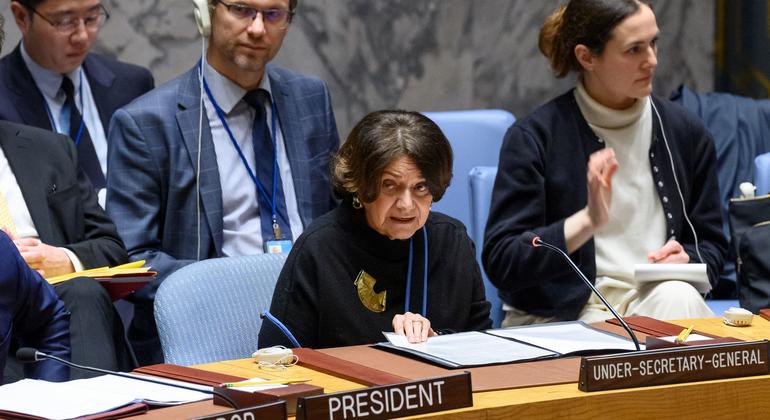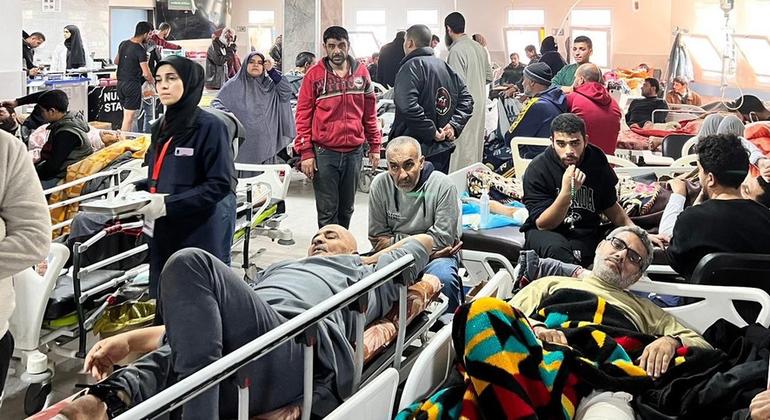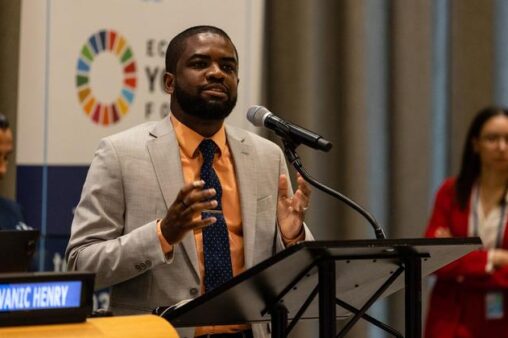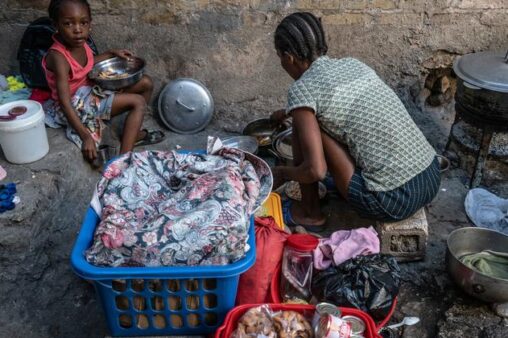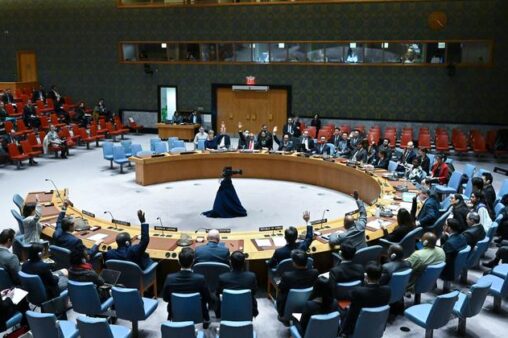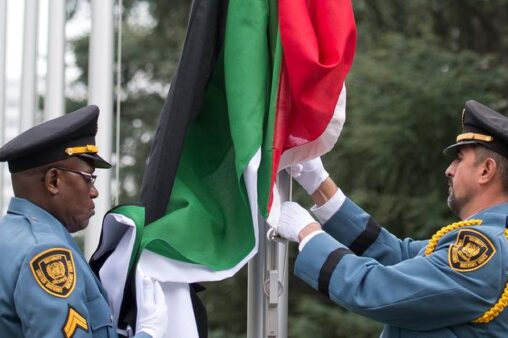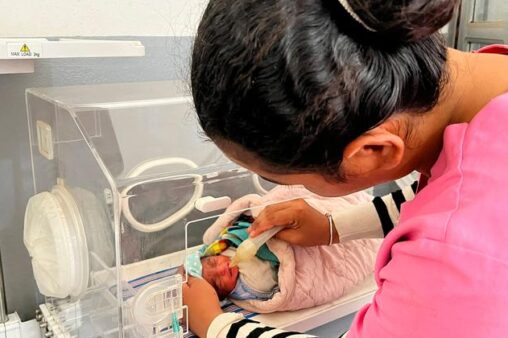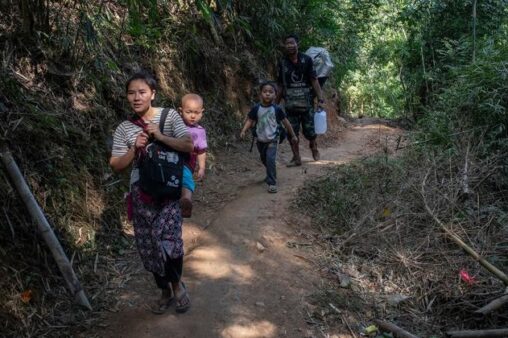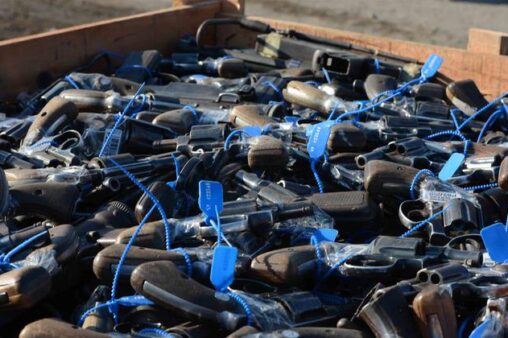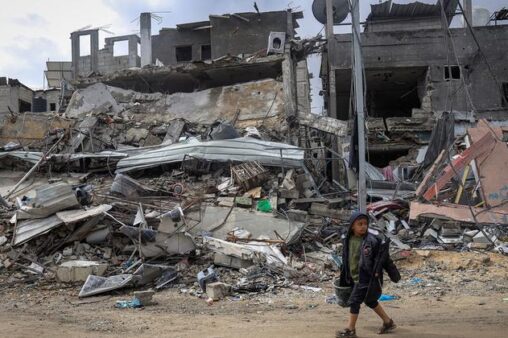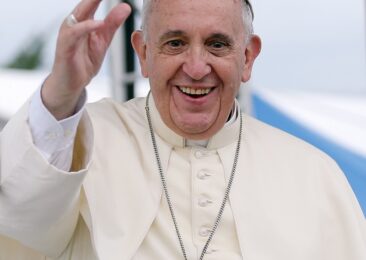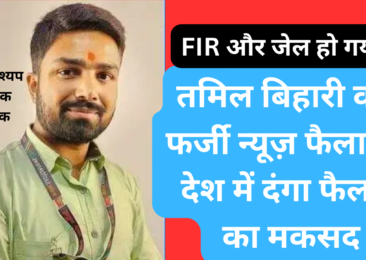Amid ‘unprecedented escalation’ in Gaza, UN calls for immediate humanitarian ceasefire
[ad_1]
Secretary-General António Guterres said: “I reiterate my strong appeal for an immediate humanitarian ceasefire, together with the unconditional release of hostages and the delivery of relief at a level corresponding to the dramatic needs of the people in Gaza, where a humanitarian catastrophe is unfolding in front of our eyes.”
The UN chief is on his way to Nepal for an official visit but is closely following the situation in the Middle East.
According to his spokesperson in NY, during a stopover in Doha, Qatar, Mr. Guterres spoke by phone with Egyptian President Abdel Fattah Al Sisi and the two discussed the current situation in that region and the coordination of humanitarian efforts for civilians in Gaza.
This is the moment of truth. Everyone must assume their responsibilities. History will judge us all – UN Secretary-General António Guterres
In Doha, Mr. Guterres met with Qatari Prime Minister Sheikh Mohammed bin Abdulrahman bin Jassim Al-Thani for consultations on the Middle East crisis.
The UN chief expressed deep gratitude, appreciation and support for the mediation initiatives of Qatar, namely for the release of the hostages kept in Gaza.
On the situation in Gaza, the Secretary-General said that he had been encouraged in the last days by what seemed to be a growing consensus in the international community, including the countries supporting Israel, for the need of at least a humanitarian pause in the fighting.
Such a pause would facilitate the release of hostages in Gaza, the evacuation of third country nationals and the necessary massive scale up of the delivery of humanitarian aid to the people in Gaza.
“Regrettably, instead of the pause, I was surprised by an unprecedented escalation of the bombardments and their devastating impacts, undermining the referred humanitarian objectives,” lamented the UN chief.
Moreover, he said that given the breakdown in communications, he was also extremely concerned about the UN staff who are in Gaza to deliver humanitarian assistance.
“This situation must be reversed,” he said adding: “I want to repeat what I said yesterday. This is the moment of truth. Everyone must assume their responsibilities. History will judge us all.”
‘Communications blackout’
Meanwhile, the World Health Organization (WHO) warned that a “total communication and electrical blackout” follows a night of continuing hostilities and ground incursions in Gaza.
The UN health agency says that it has lost contact with its staff in the enclave but is still trying to gather information on the overall impact on civilians and health care.
“WHO reminds all parties to the conflict to take all precautions to protect civilians and civilian infrastructure. This includes health workers, patients, health facilities and ambulances, and civilians who are sheltering in these facilities,” the agency said in a press release.
Active measures must be taken, the agency continued, to ensure civilians and health workers are not harmed and safe passage provided for the movement of desperately needed medical supplies, fuel, water and food into and across Gaza.
WHO’s warning comes as the crisis in the Gaza Strip enters its third week following the 7 October incursion by Hamas militants into Israel and Israel’s subsequent declaration of war.
The ongoing violence has left thousands dead on both sides and while UN and other humanitarian agencies have been able to move a trickle of aid, goods and health supplied into the ravaged enclave through the Rafah crossing in Egypt, much more is needed to meet the skyrocketing needs.

‘More wounded by the hour’
WHO said that reports of bombardment near the Indonesia and Al Shifa hospitals are gravely concerning, and the agency reiterated that it is impossible to evacuate patients without endangering their lives.
“Hospitals across Gaza are already operating at maximum capacity due to the injuries sustained in weeks of unrelenting bombardment and are unable to absorb a dramatic rise in the number of patients, while sheltering thousands of civilians,” according to WHO.
Moreover, health workers who have stayed by their patients’ sides face dwindling supplies, with no place to put new patients, and no means to alleviate their patients’ pain.
“There are more wounded every hour. But ambulances cannot reach them in the communications blackout. Morgues are full. More than half of the dead are women and children,” said WHO.
UN General Assembly action
“WHO appeals to the humanity in all those who have the power to do so to end the fighting now, in line with the UN resolution adopted yesterday, calling for a humanitarian truce, as well as the immediate and unconditional release of all civilians held captive,” the agency concluded.
Friday afternoon the UN General Assembly approved a nonbinding resolution calling for a “humanitarian truce” in Gaza leading to a cessation of hostilities between Israel and Hamas.
The 193-member Assembly adopted the measure by a recorded vote of 120-14 with 45 abstentions, taking action during an emergency session after the Security Council, the UN body tasked with maintaining international peace and security, has been unable to reach agreement on three separate resolutions in recent days. [One UN member country, citing technical difficulties, changed its vote after the vote was recorded, so the final tally was 121 in favour to 14 against, with 44 abstentions.]
‘New levels of violence’
In a separate statement on Saturday, the UN High Commissioner for Human Rights said last night’s bombardment and ground operations in Gaza by Israeli forces were reportedly the most intensive yet, “taking this terrible crisis to a new level of violence and pain.”
Compounding the misery and suffering of civilians, Israeli strikes on telecommunications installations and subsequent Internet shutdown have effectively left Gazans with no way of knowing what is happening across Gaza and cut them off from the outside world,” said Volker Türk.
While reminding all parties of their obligations under humanitarian and human rights law, the High Commissioner said that the bombing of the telecommunications infrastructure places the civilian population in grave danger.
Ambulances and civil defence teams are no longer able to locate the injured, or the thousands of people estimated to be still under the rubble. Civilians are no longer able to receive updated information on where they can access humanitarian relief and where they may be in less danger.
Moreover, many journalists can now no longer report on the situation, he added.
“We lost contact with our colleagues in Gaza last night. Our colleagues had already endured days and nights under the incessant bombardment of Gaza…There is no safe place in Gaza and there is no way out. I am very worried for my colleagues, as I am for all civilians in Gaza,” lamented Mr. Türk.
He went on to say that the humanitarian and human rights consequences will be devastating and long-lasting. Thousands have already died, many of them children.
“Given the manner in which military operations have been conducted until now, in the context of the 56-year-old occupation, I am raising alarm about the possibly catastrophic consequences of large-scale ground operations in Gaza and the potential for thousands more civilians to die,” he stated.
“Continued violence is not the answer. I call on all parties as well as third States, in particular those with influence over the parties to the conflict, to do all in their power to de-escalate this conflict, and to work toward the goal where Israelis and Palestinians can fully enjoy all human rights and live side by side, in peace.”
[ad_2]
Source link


